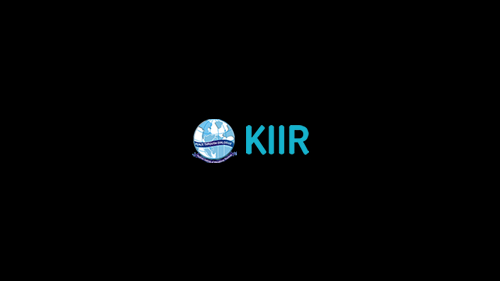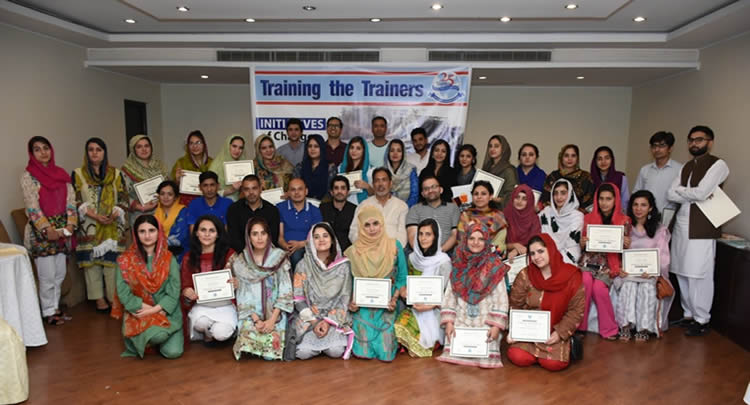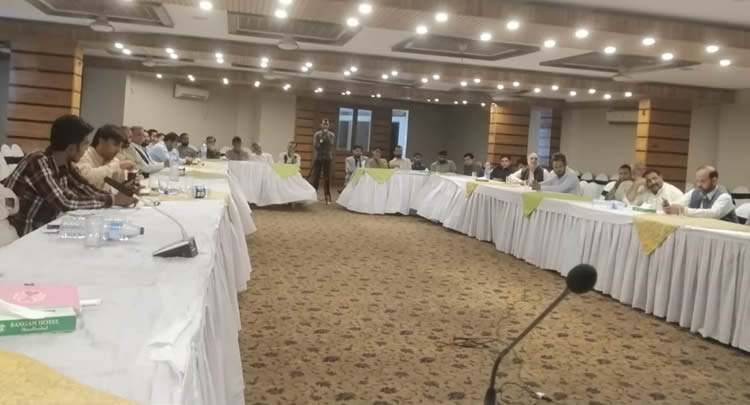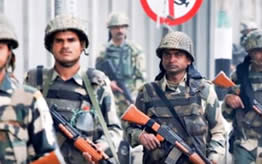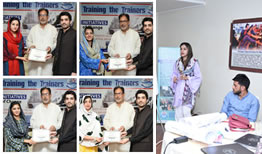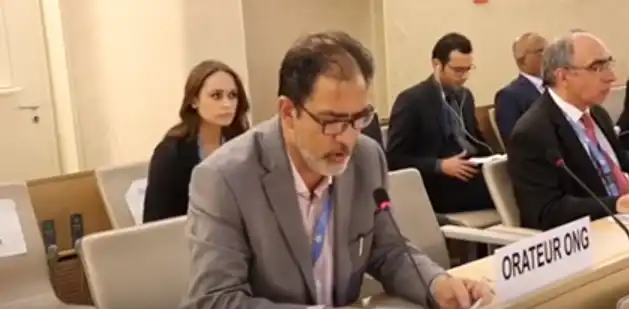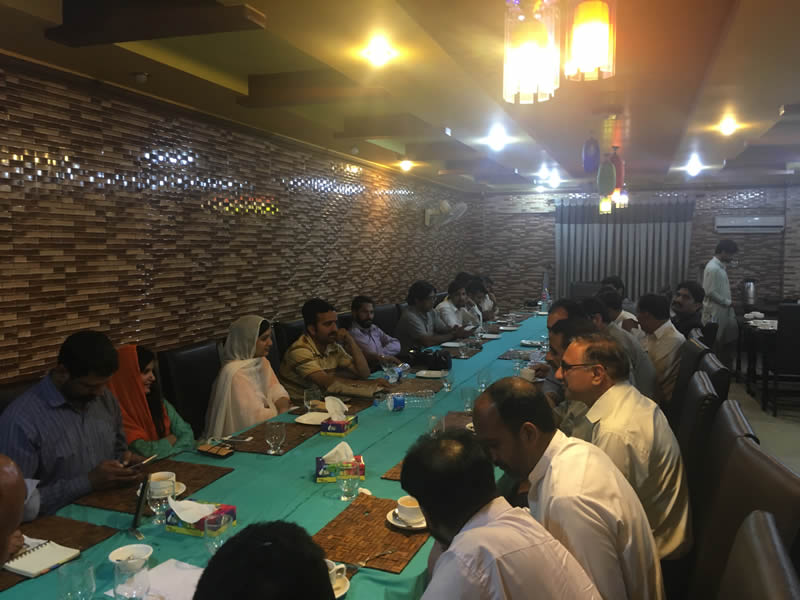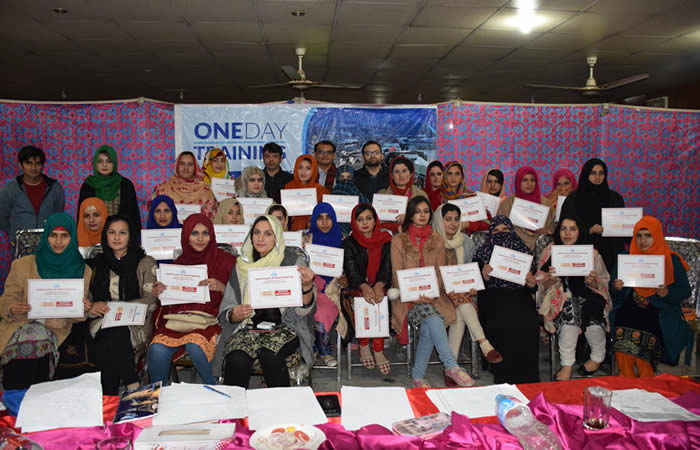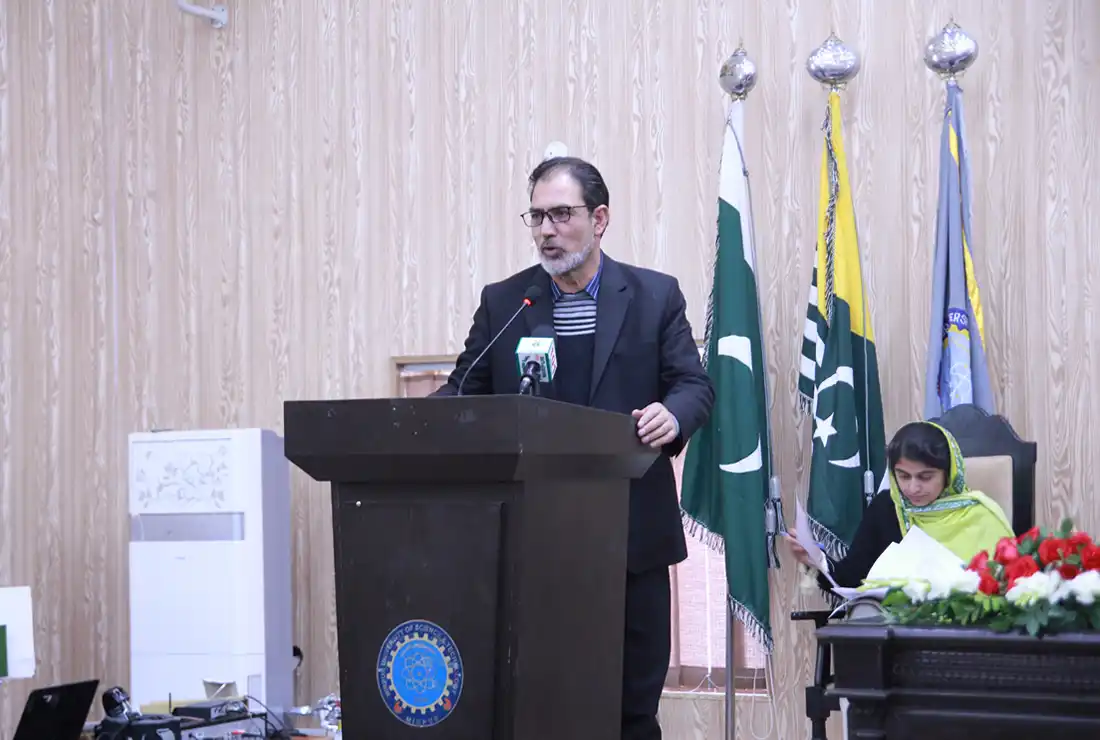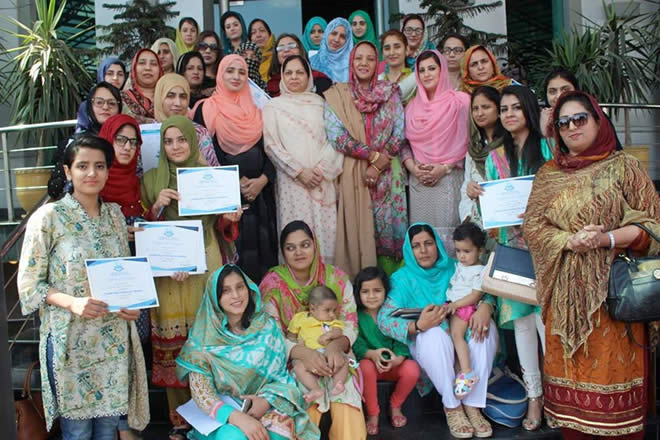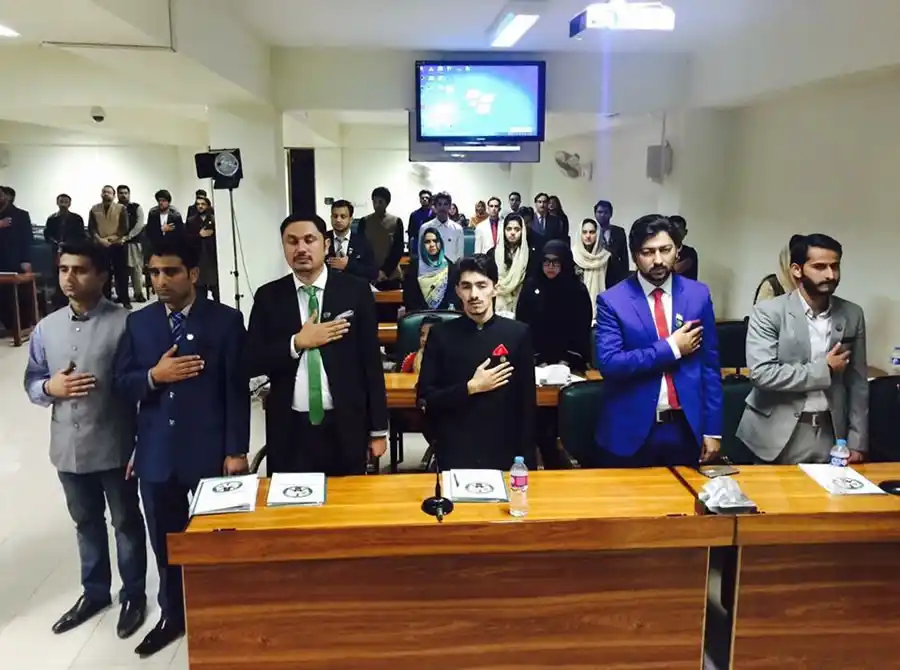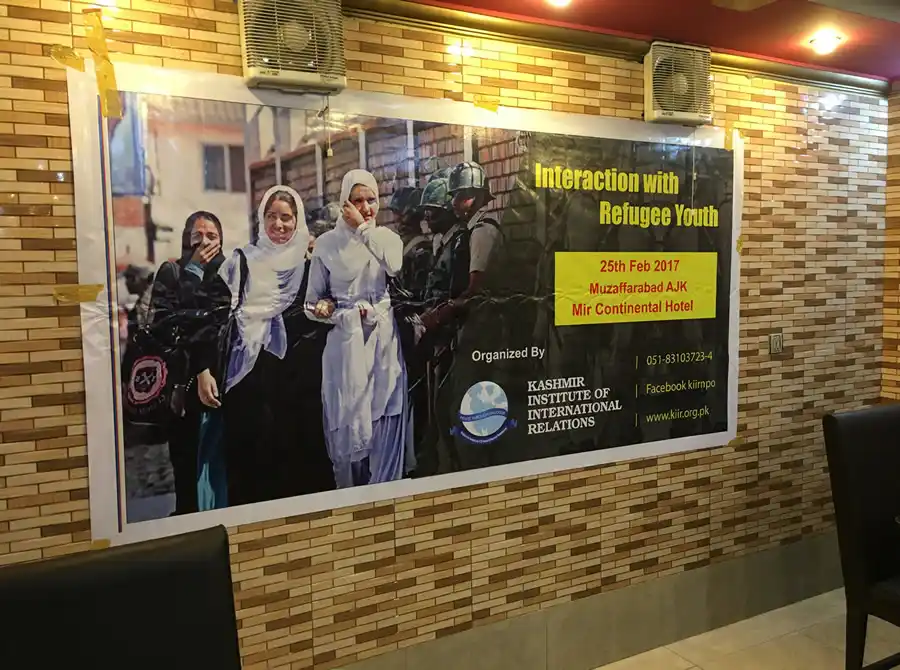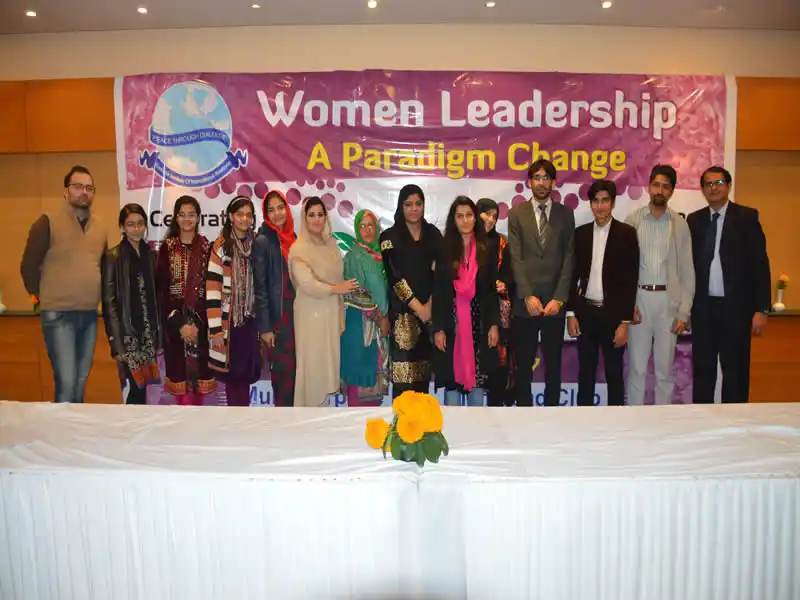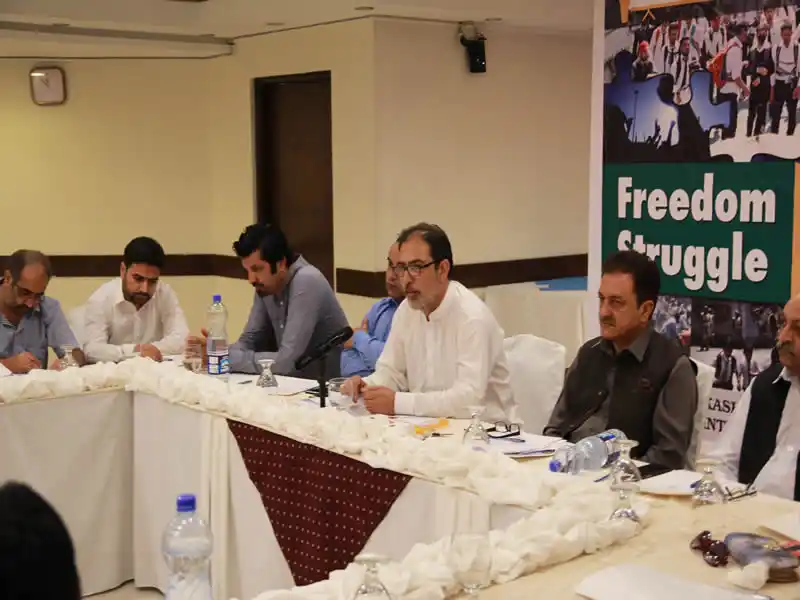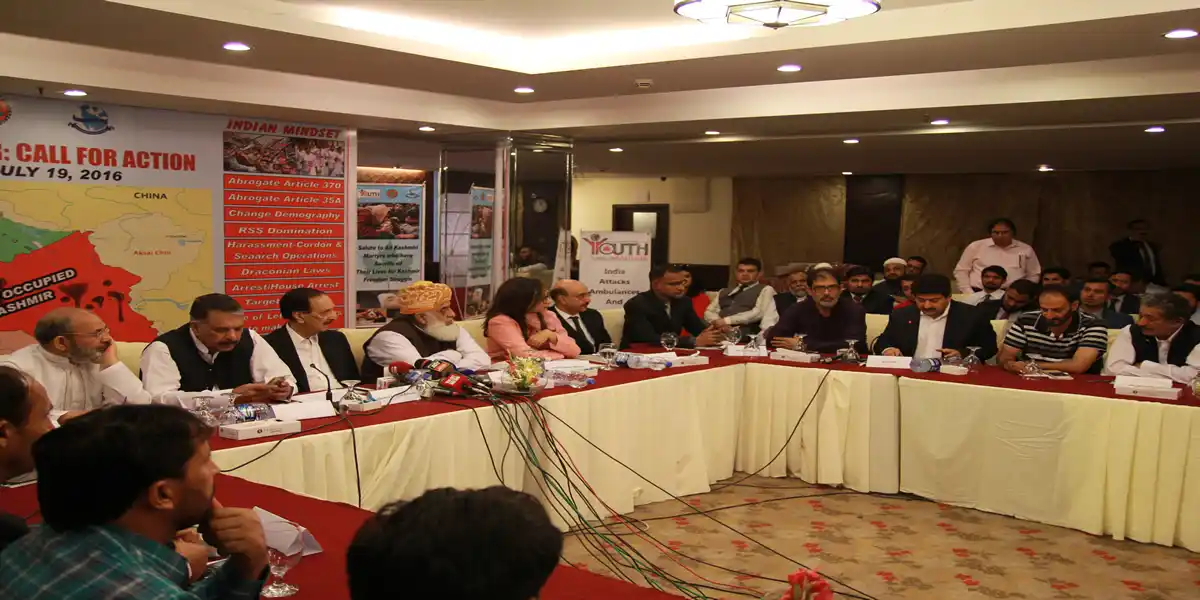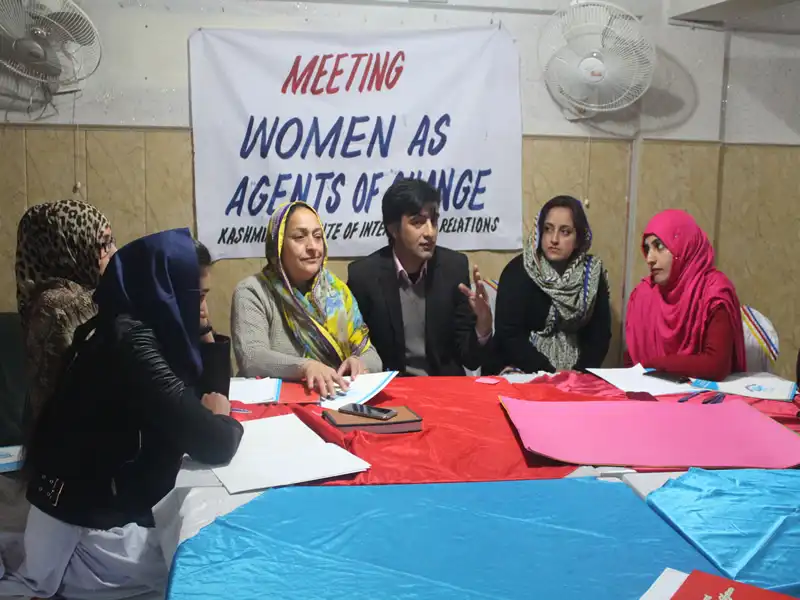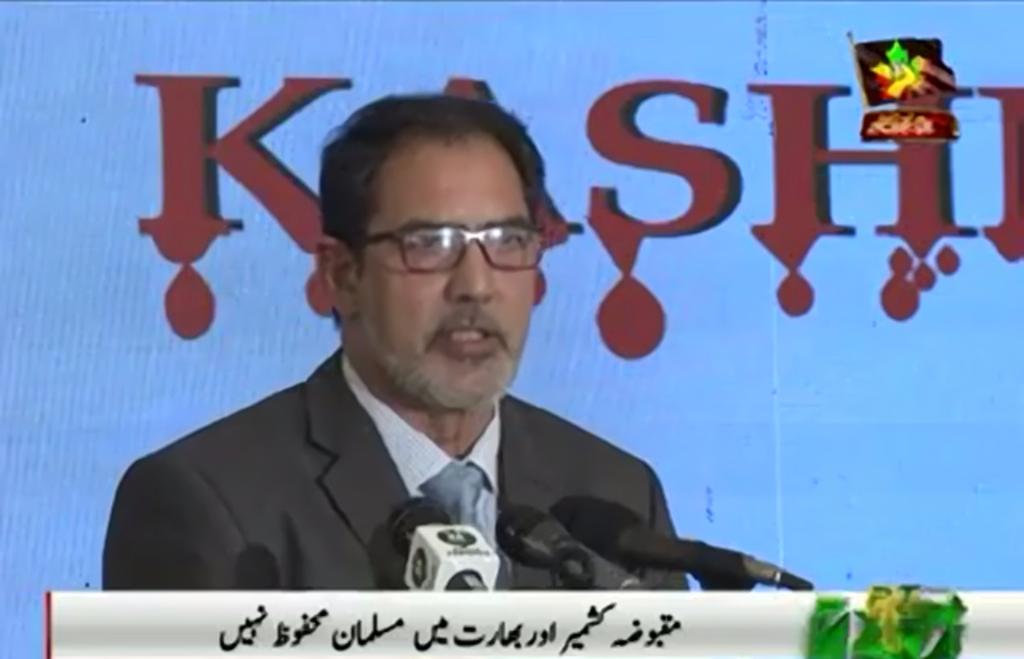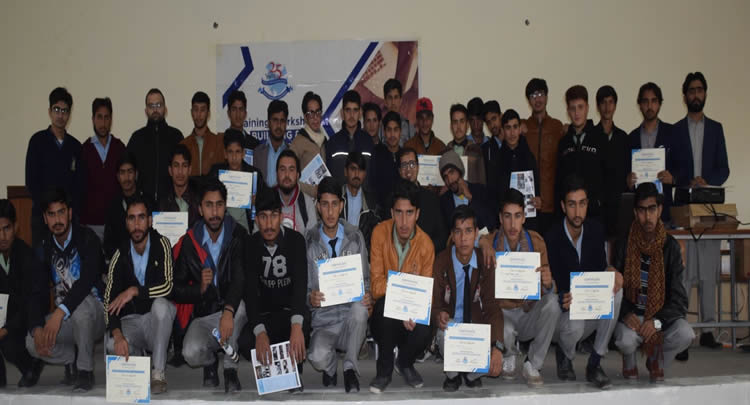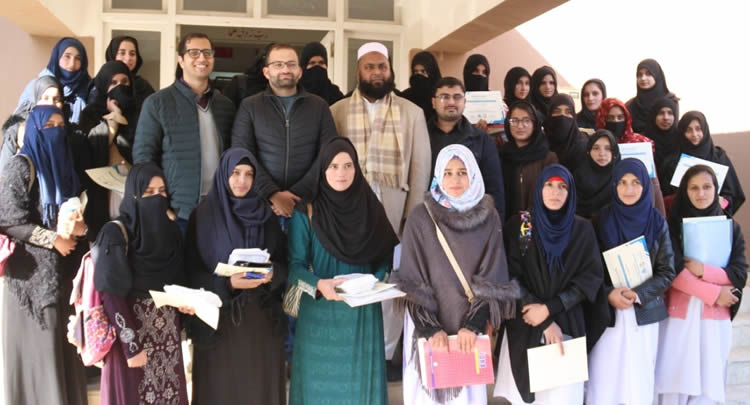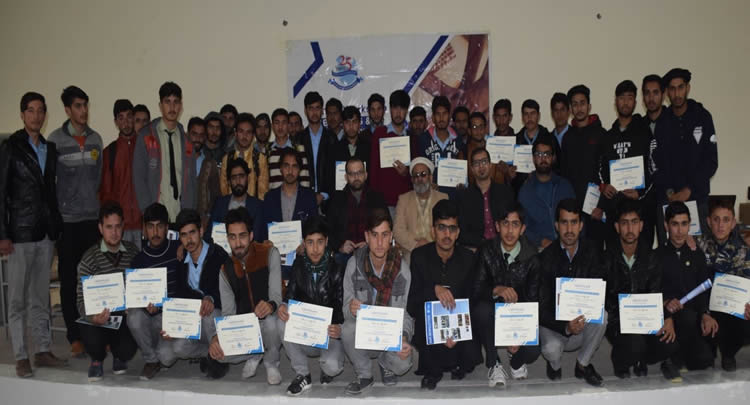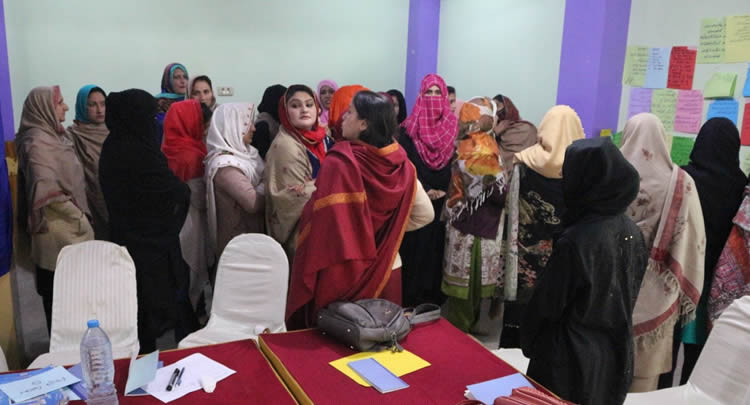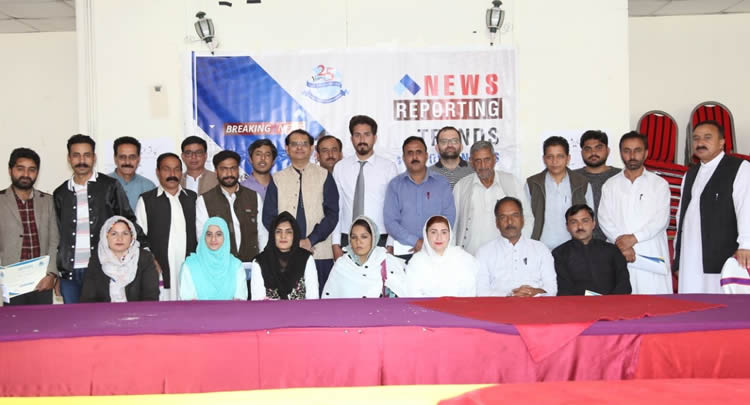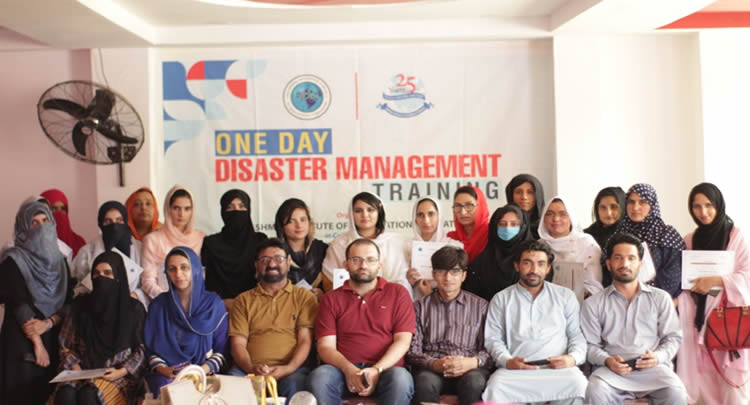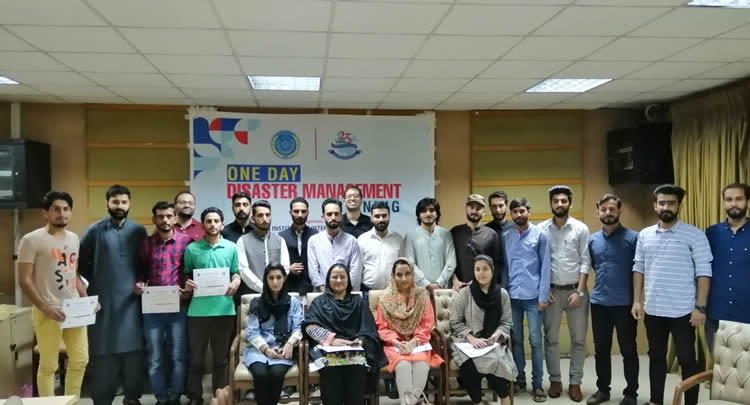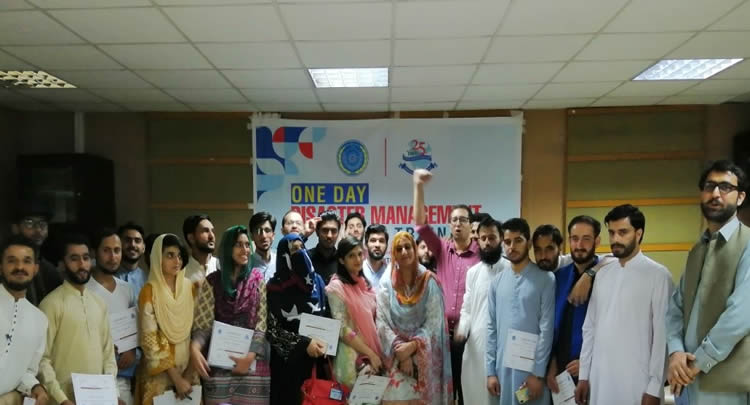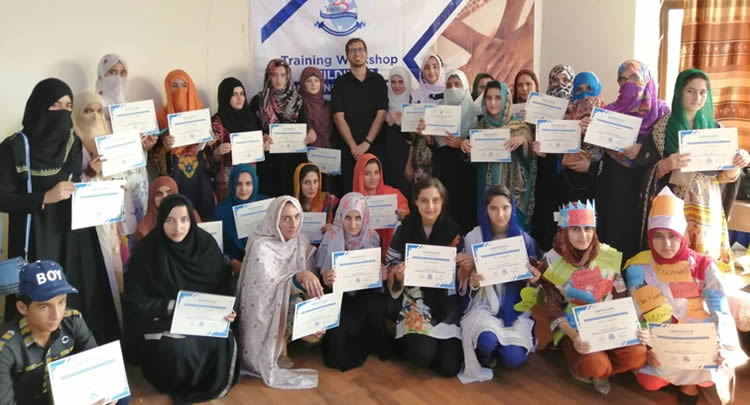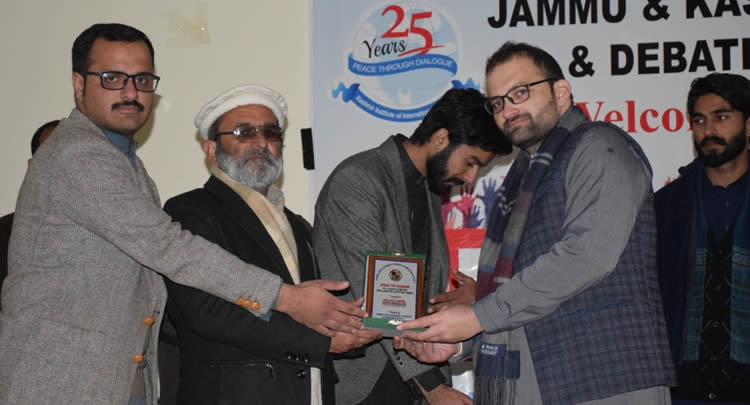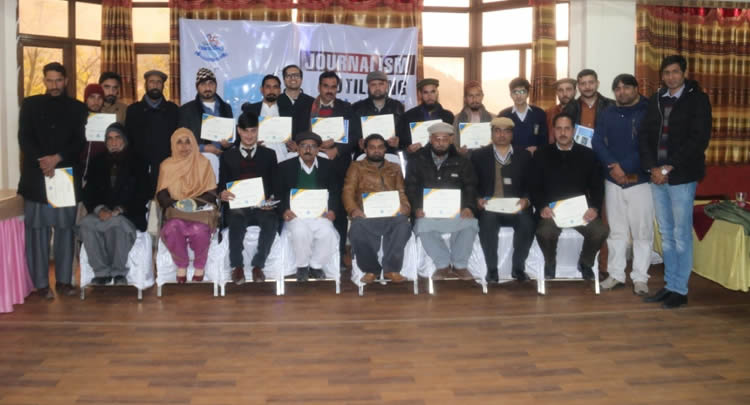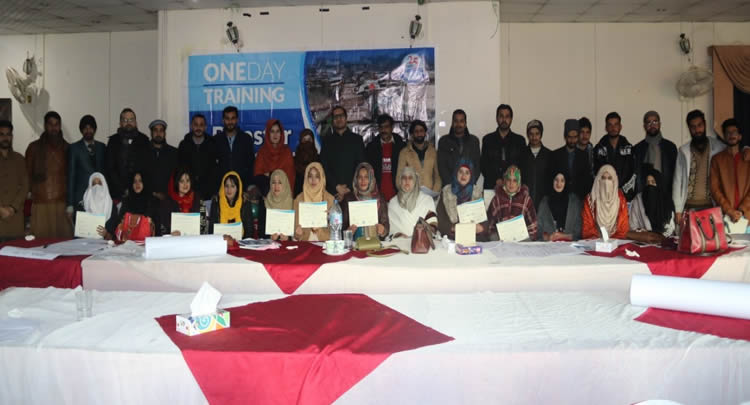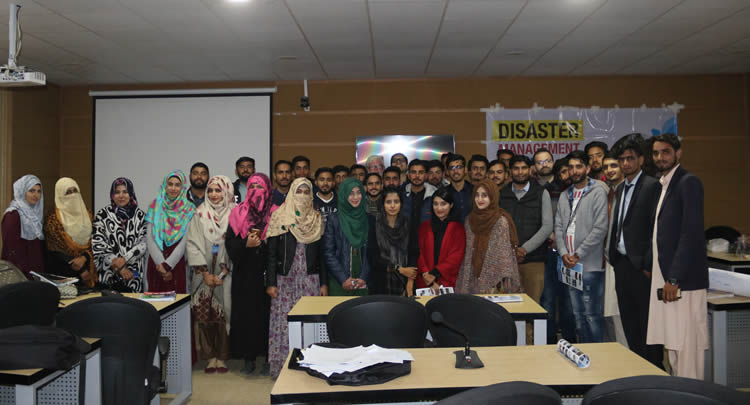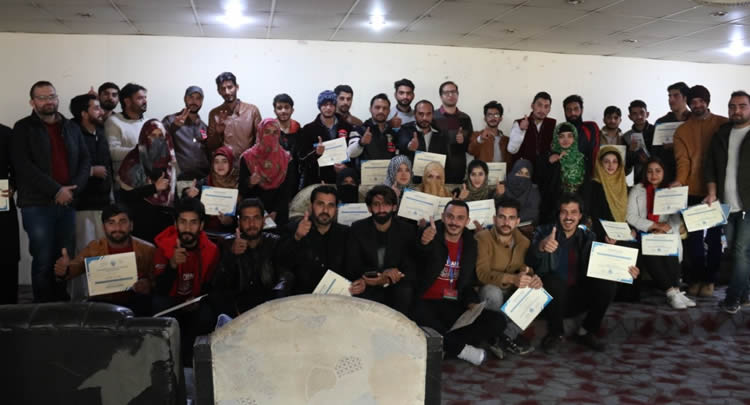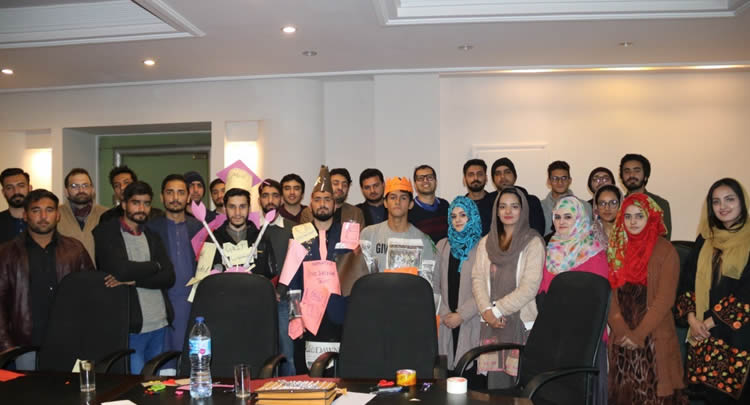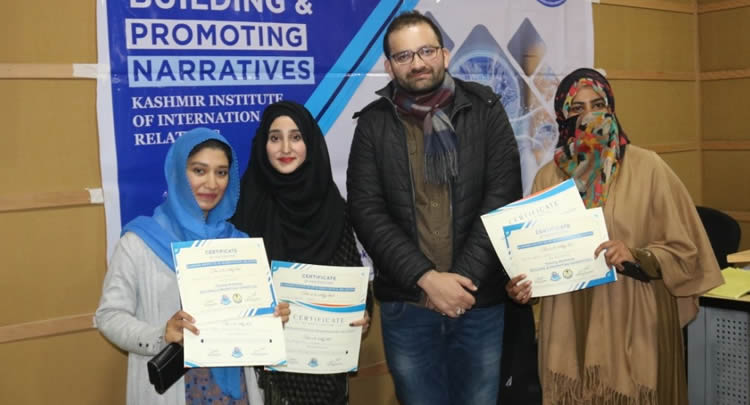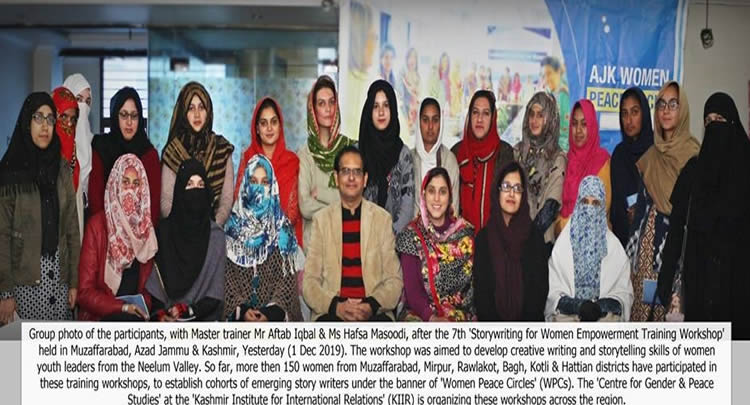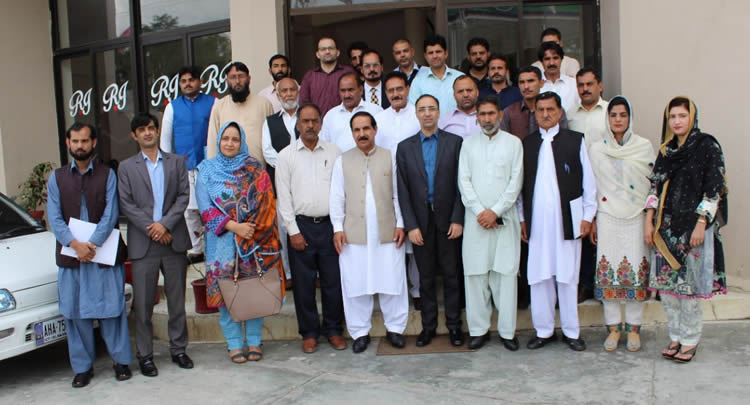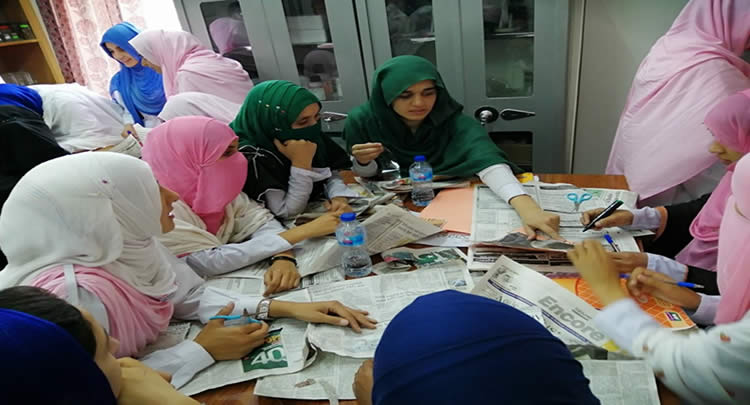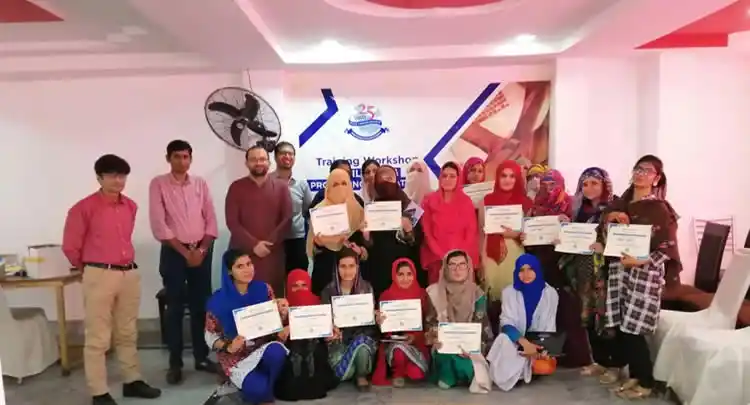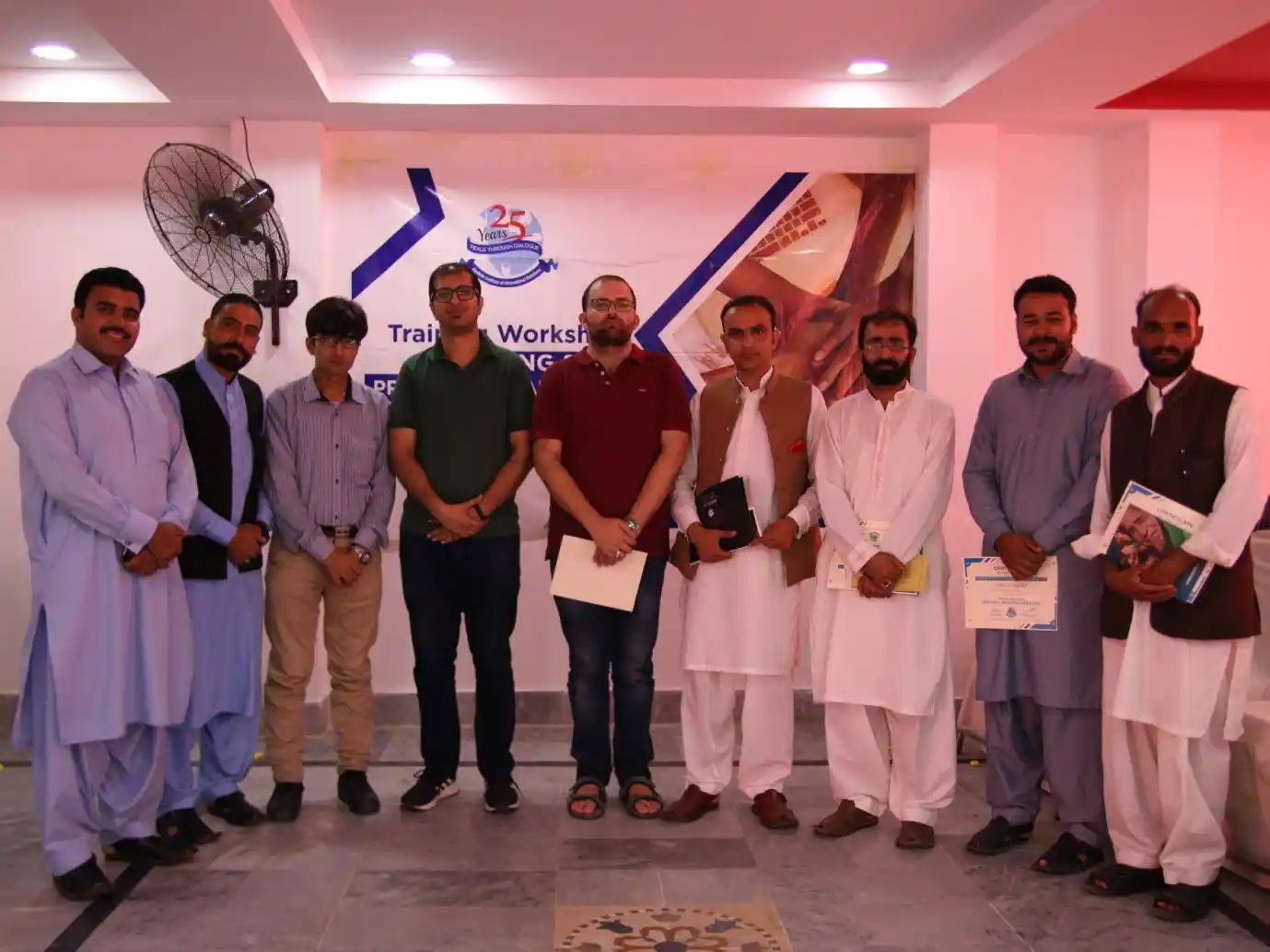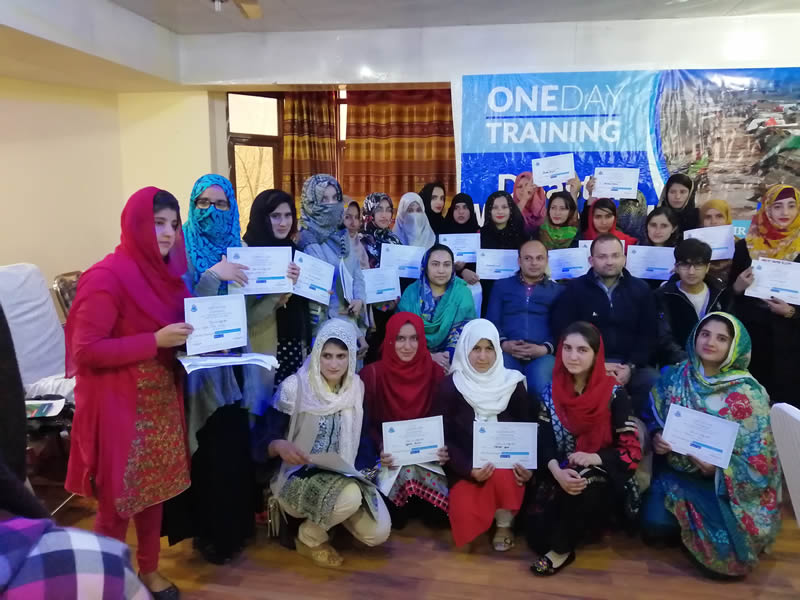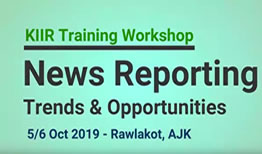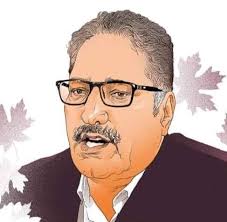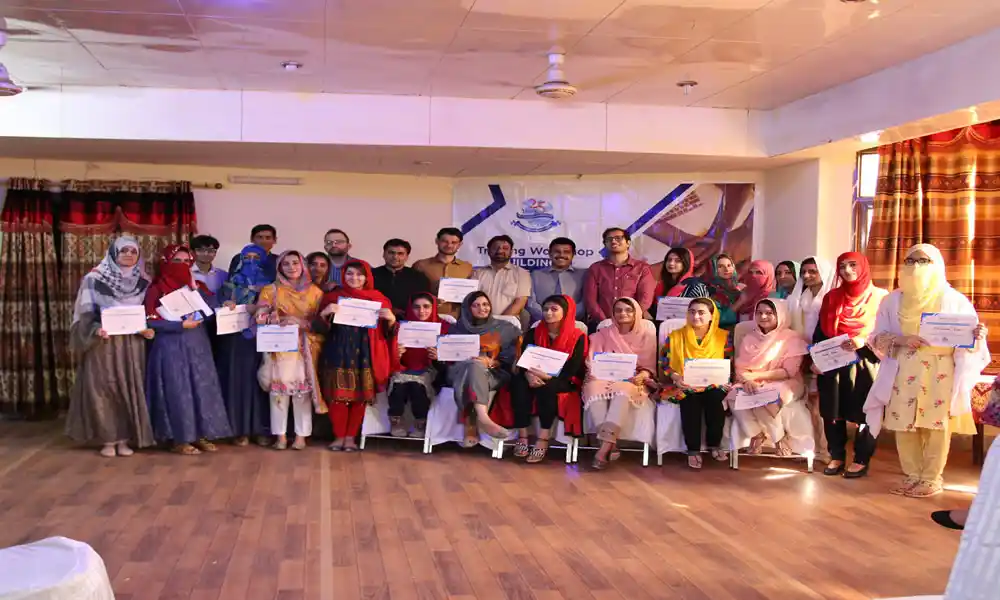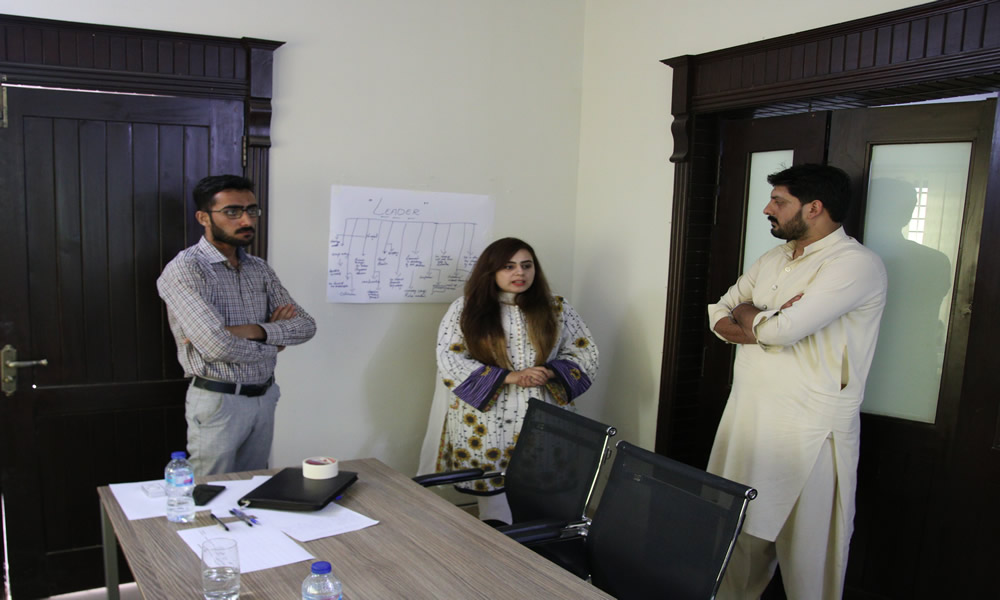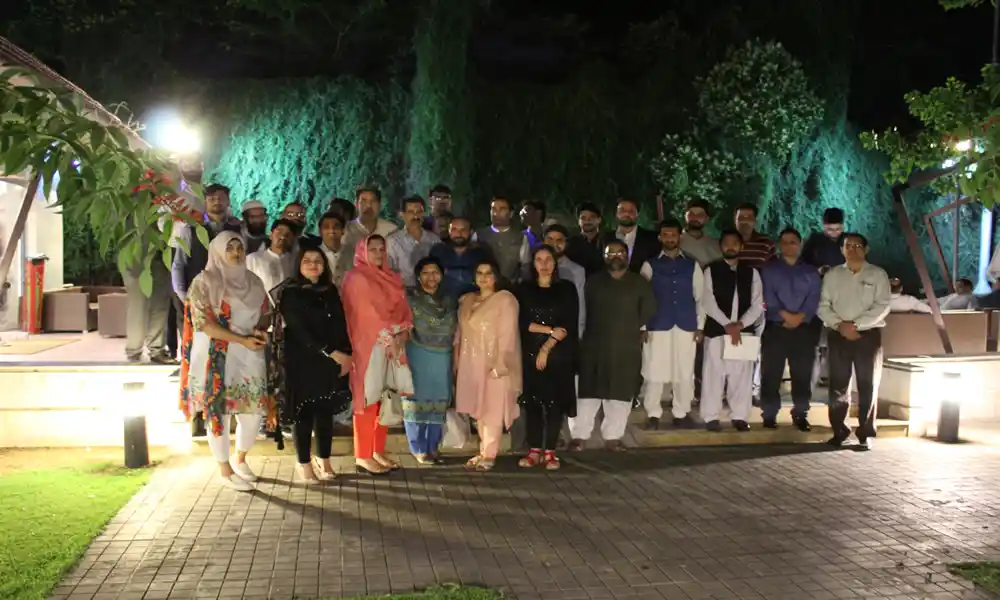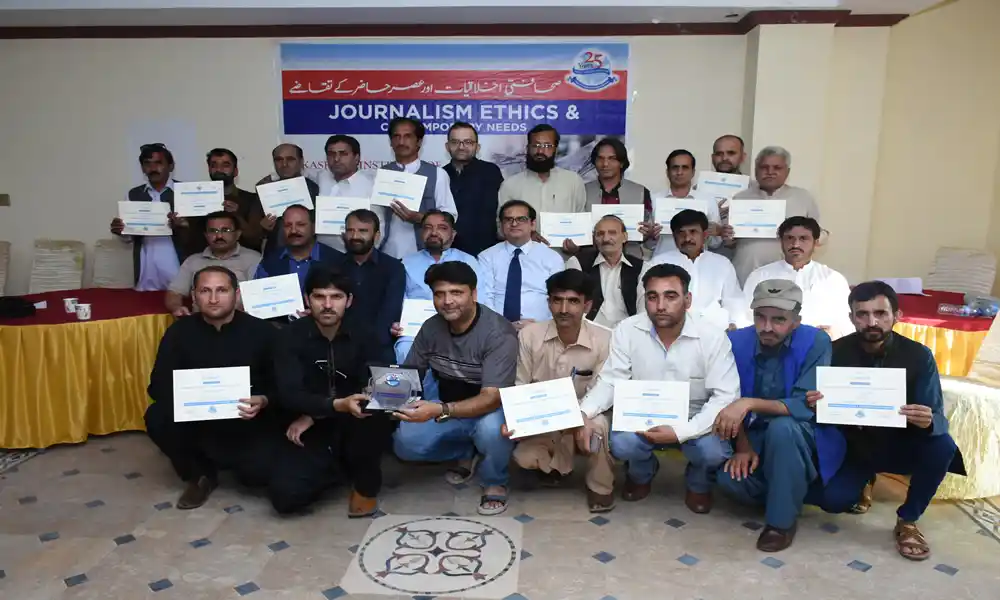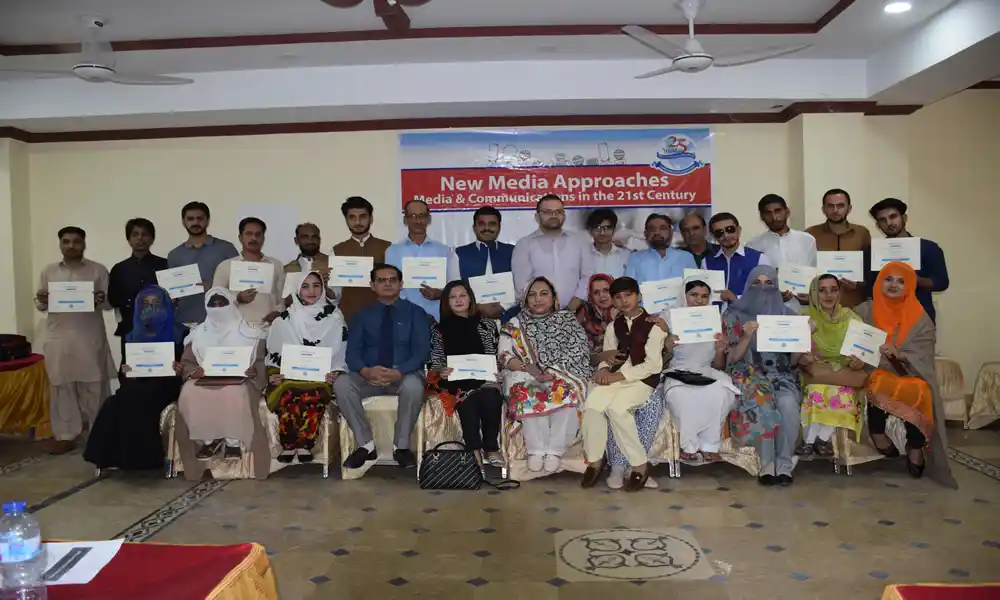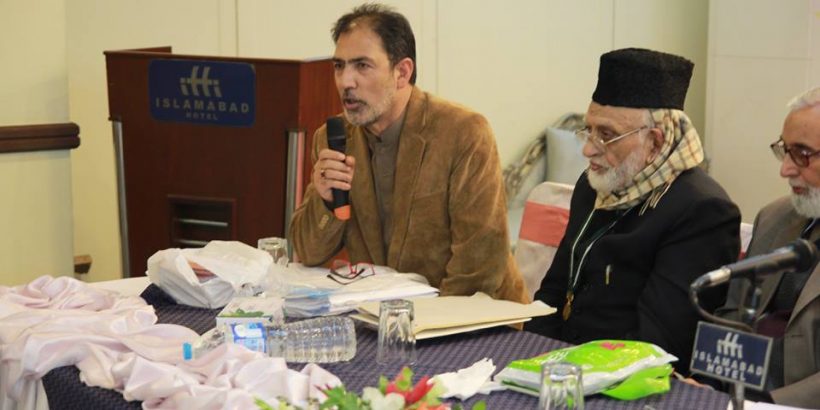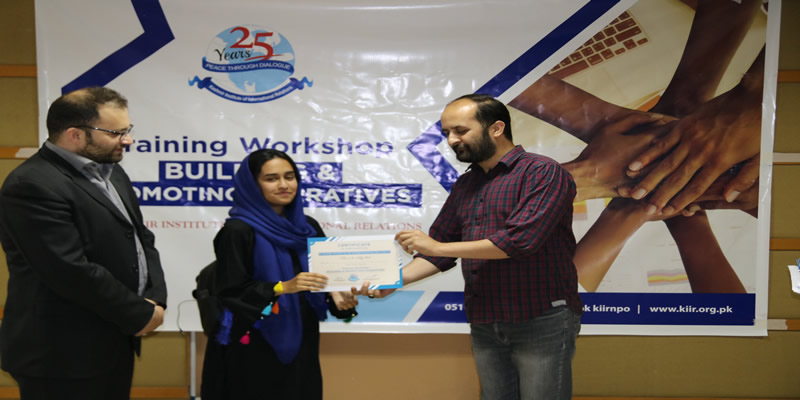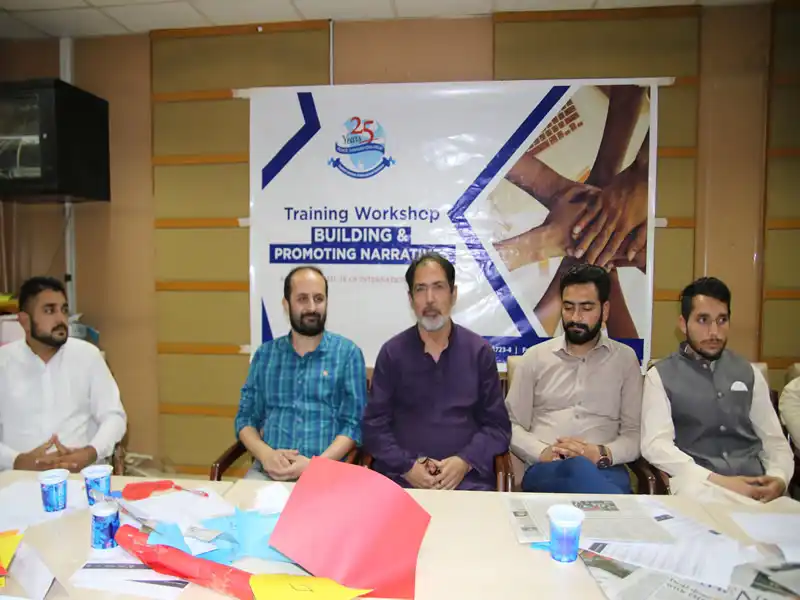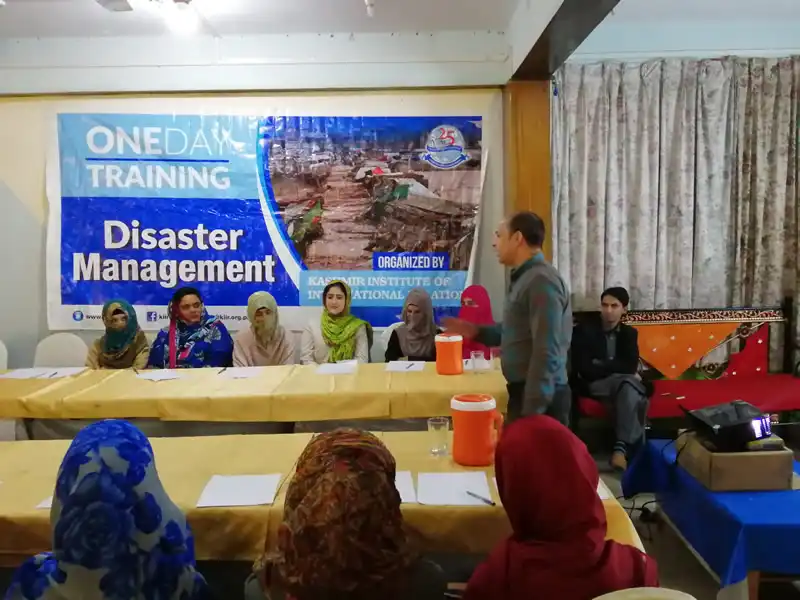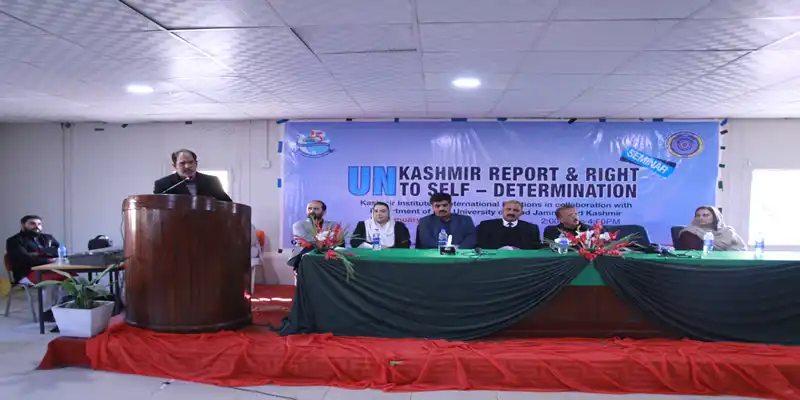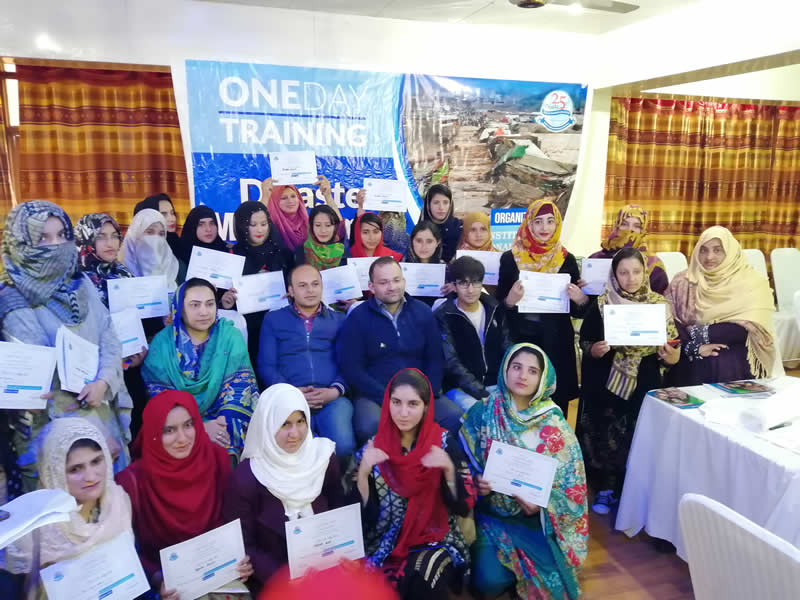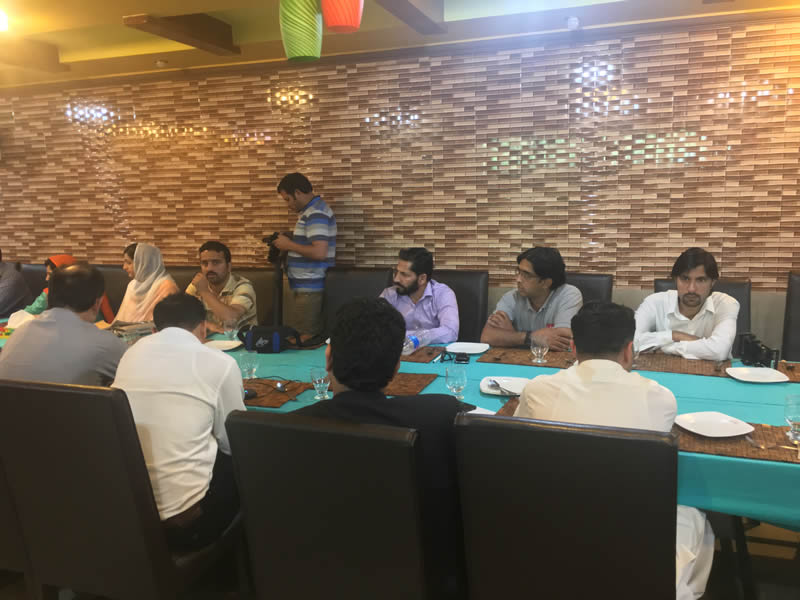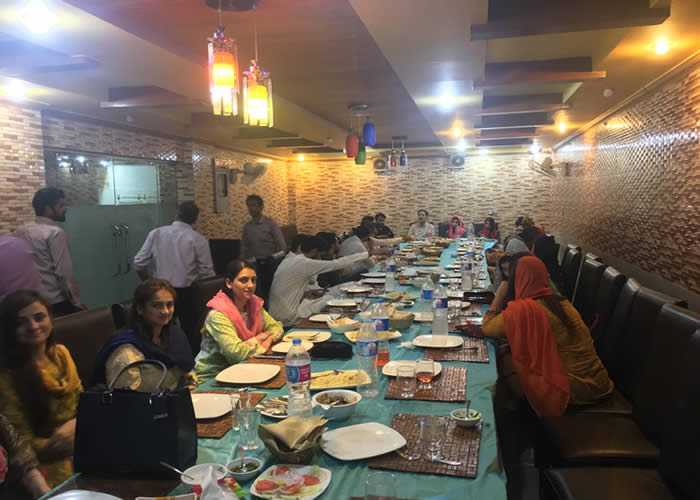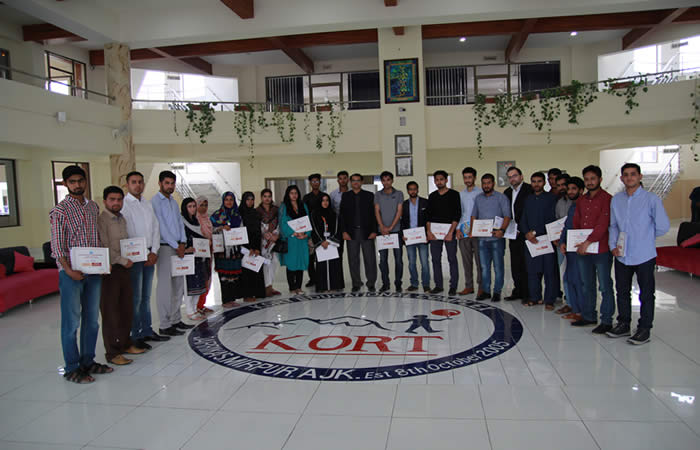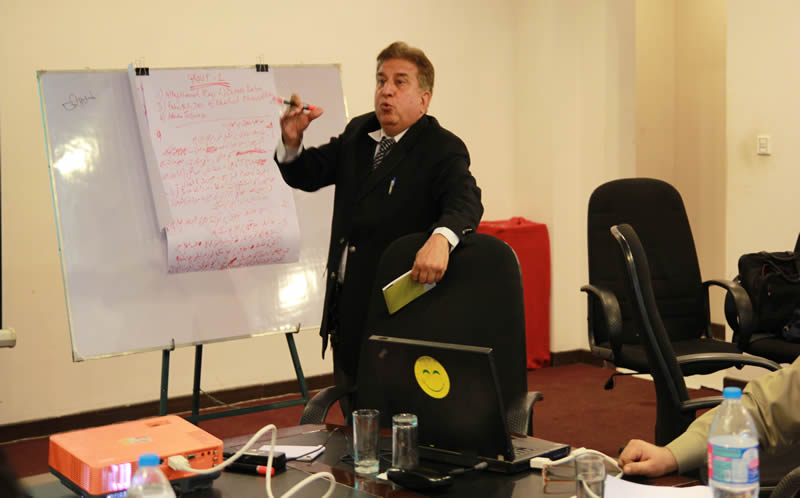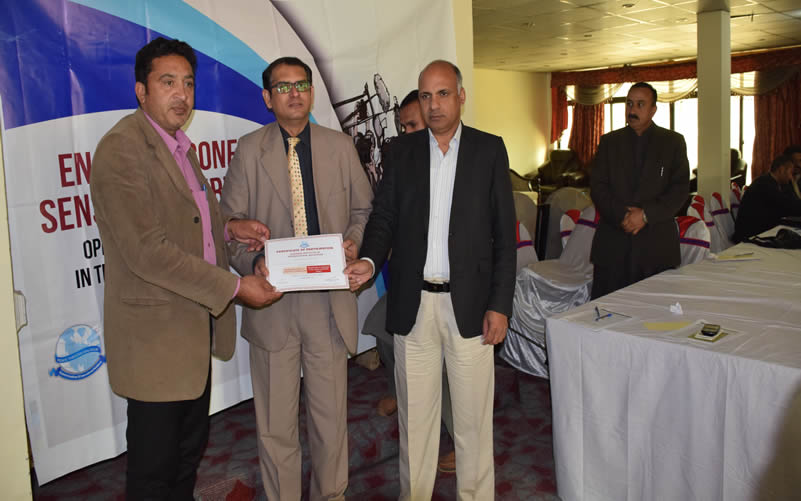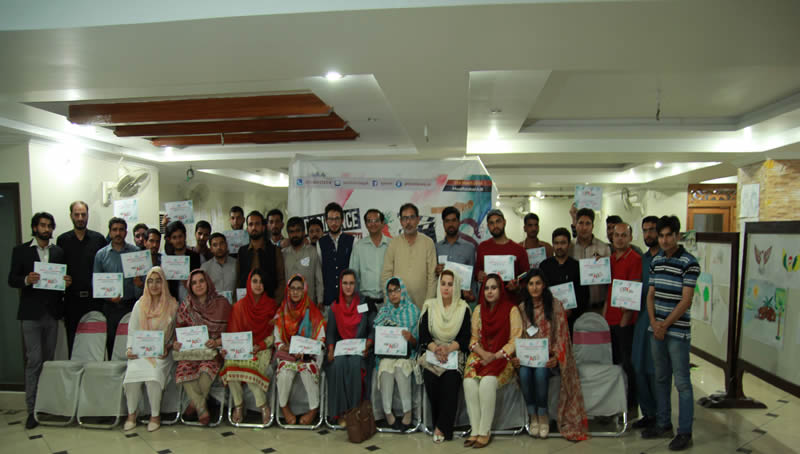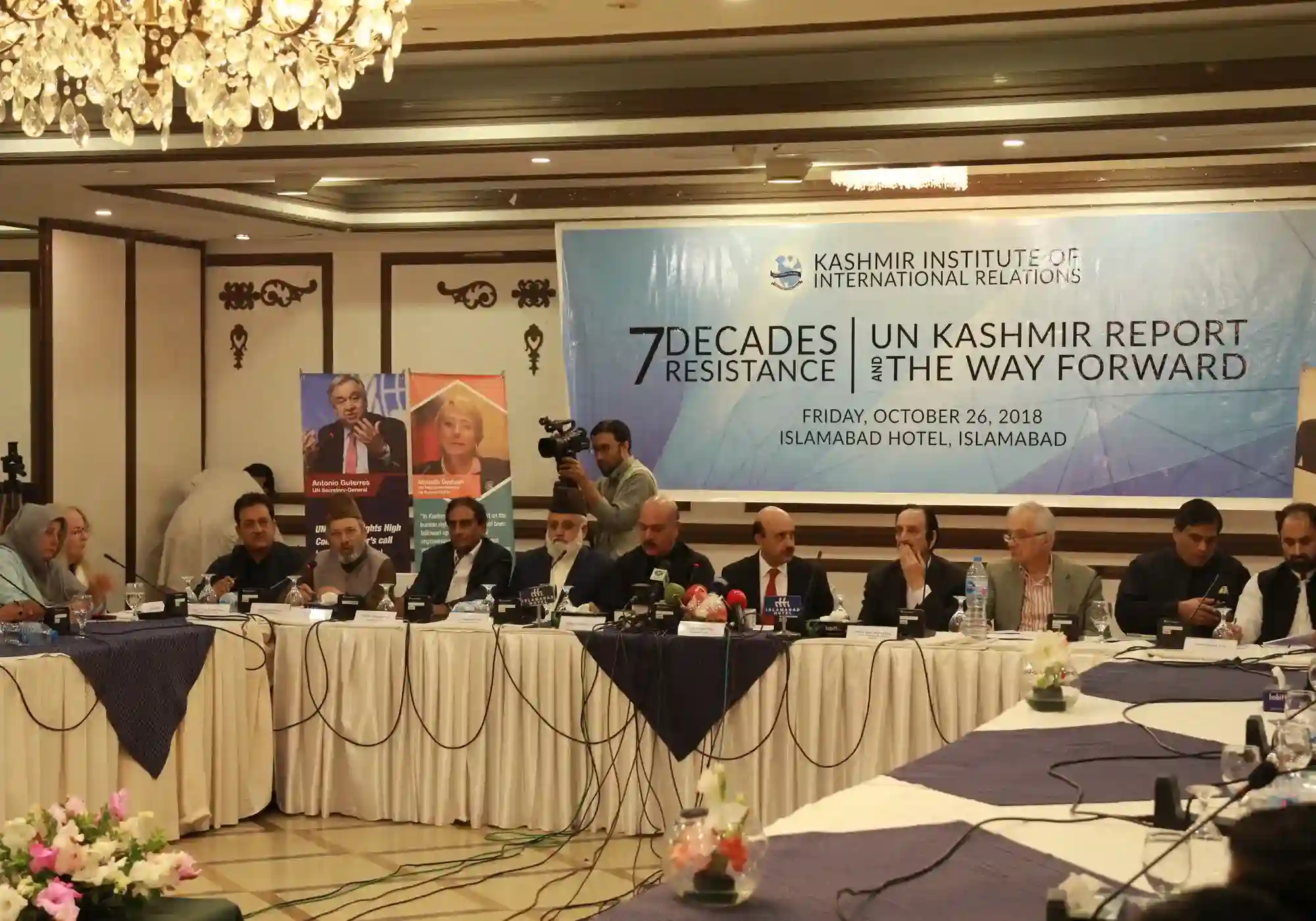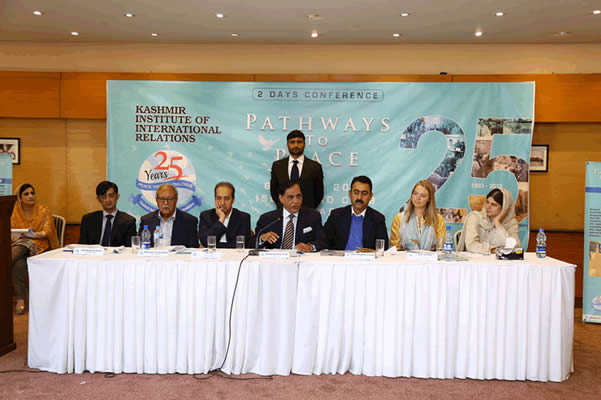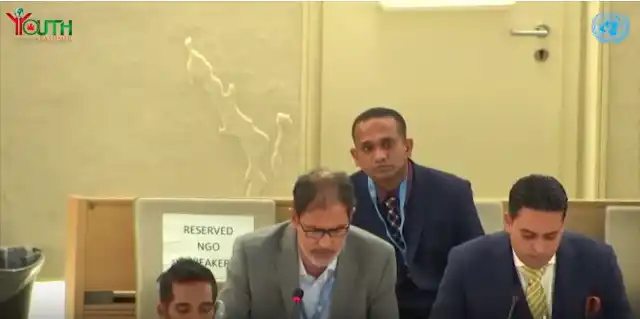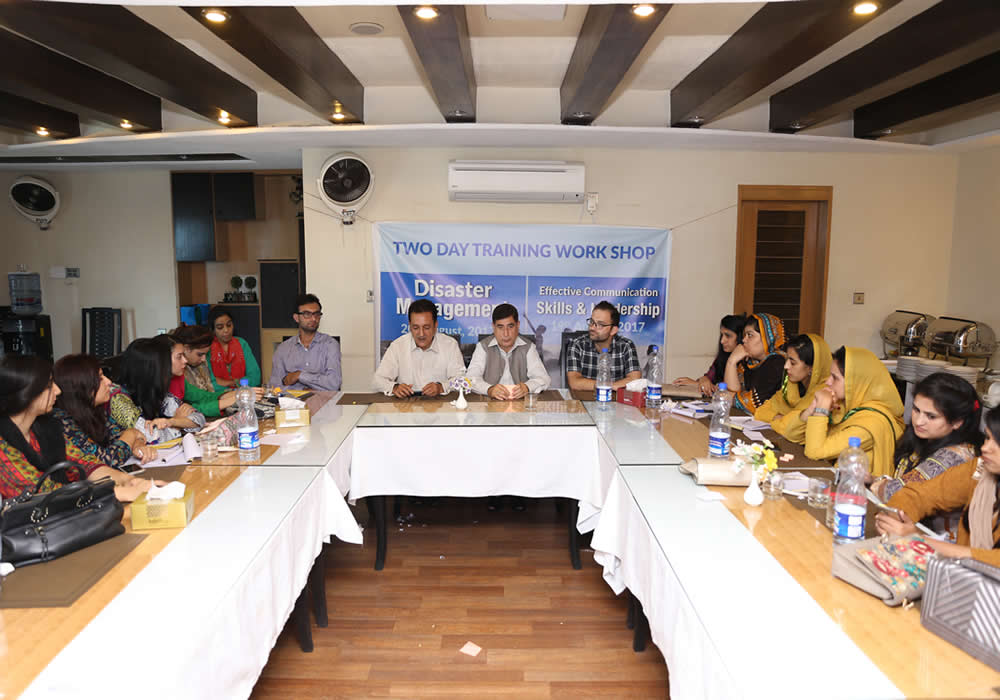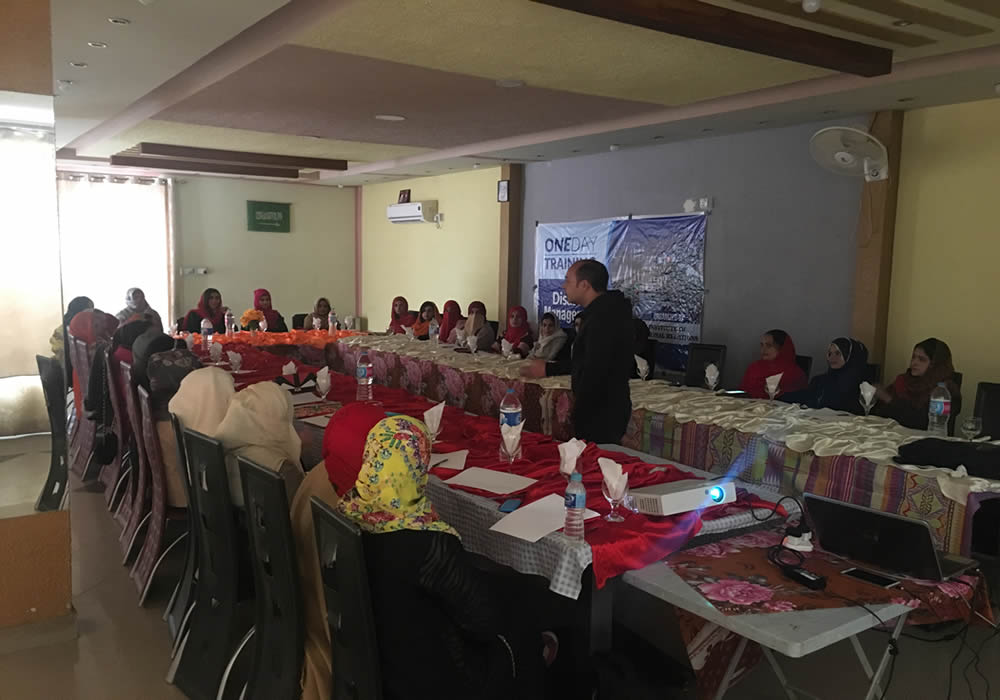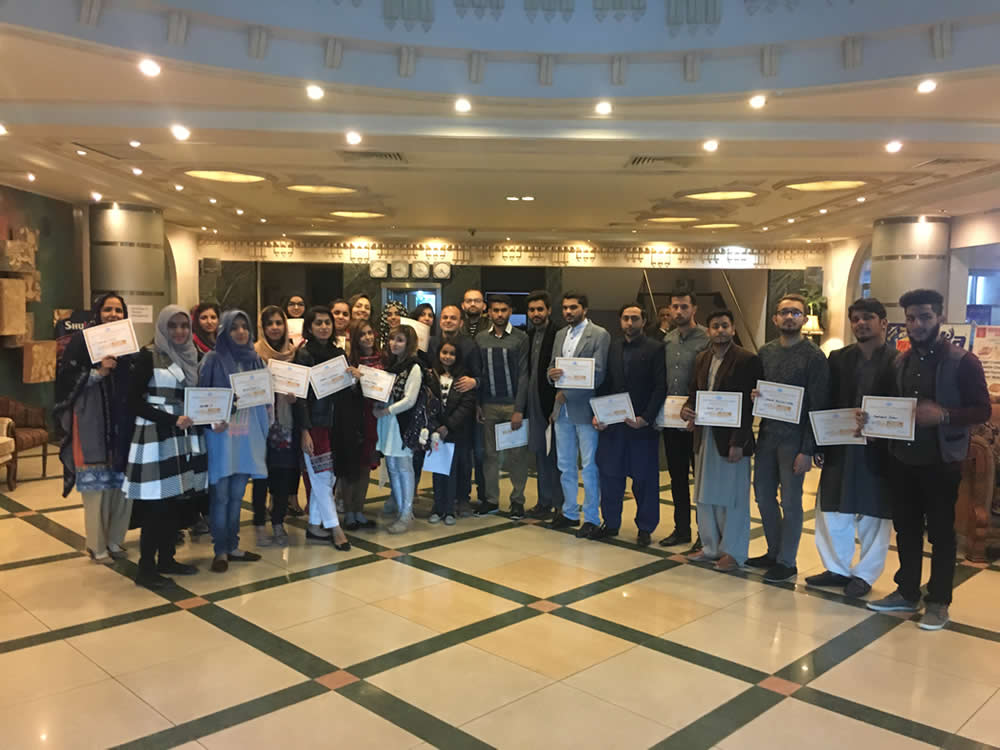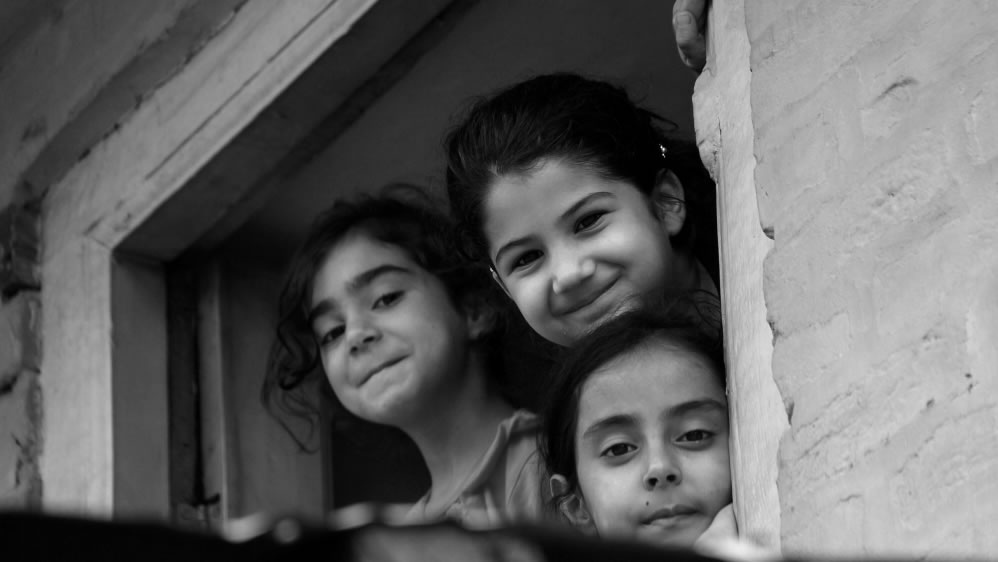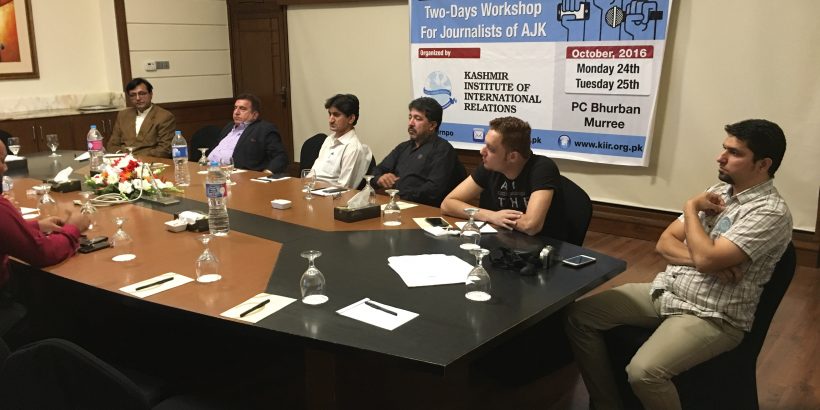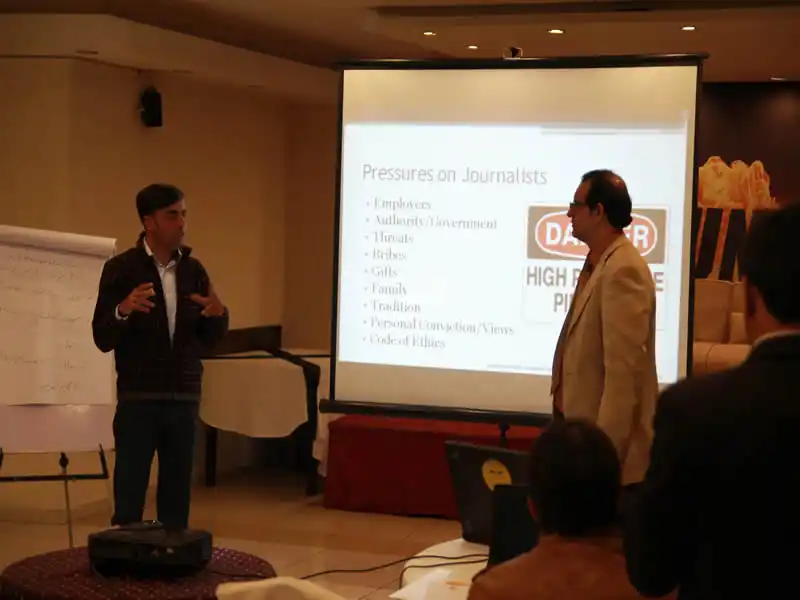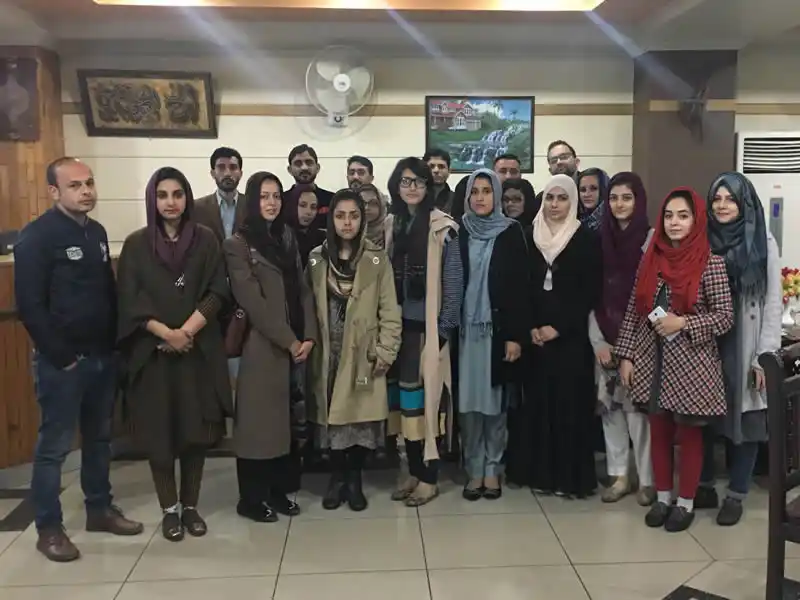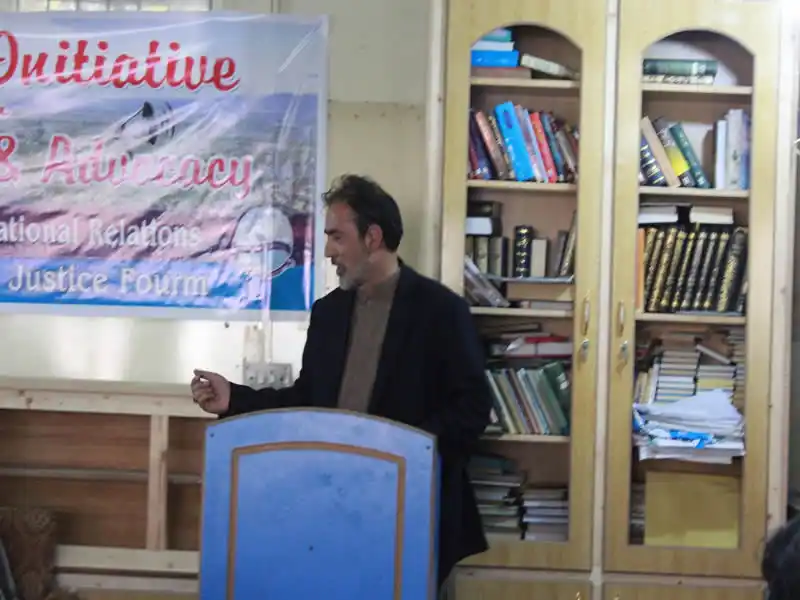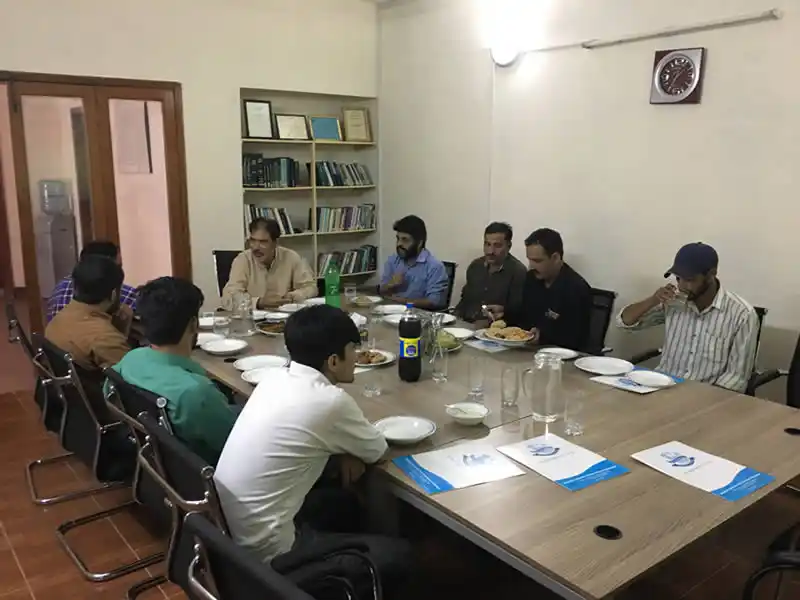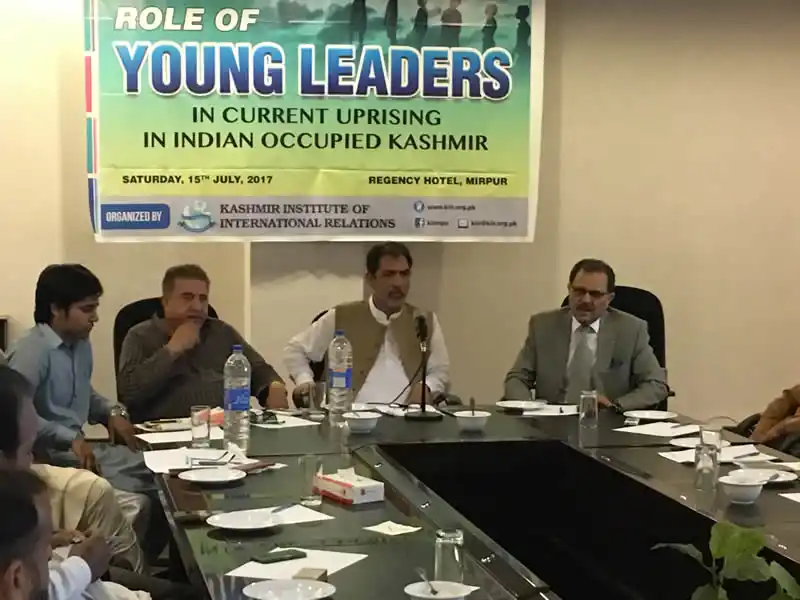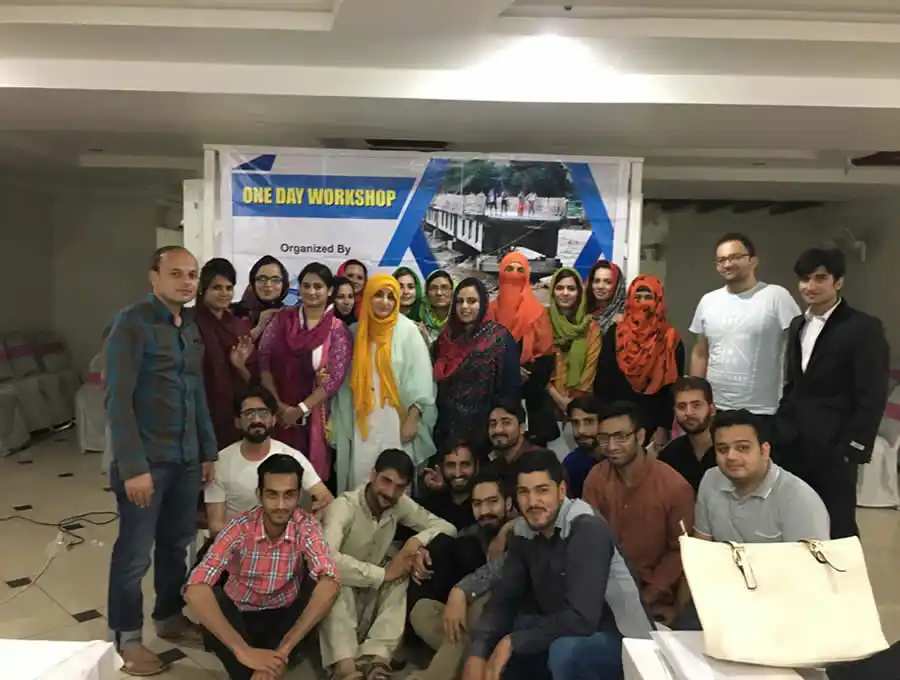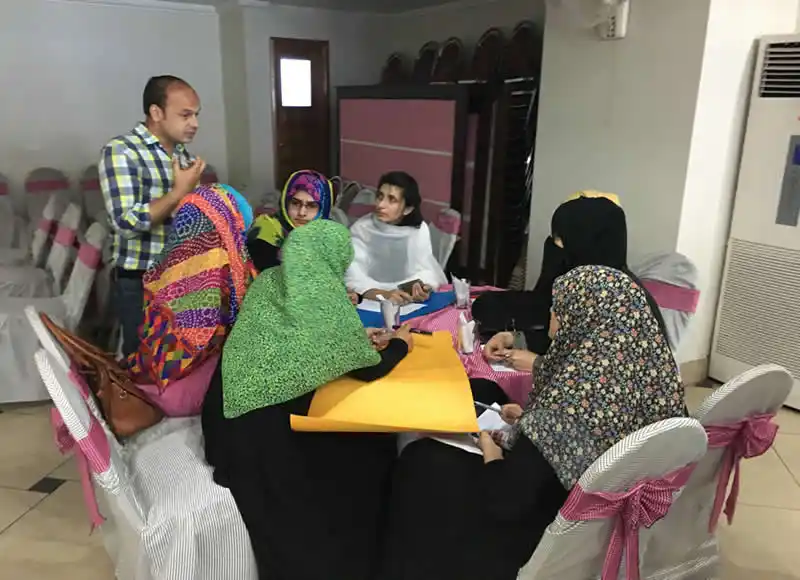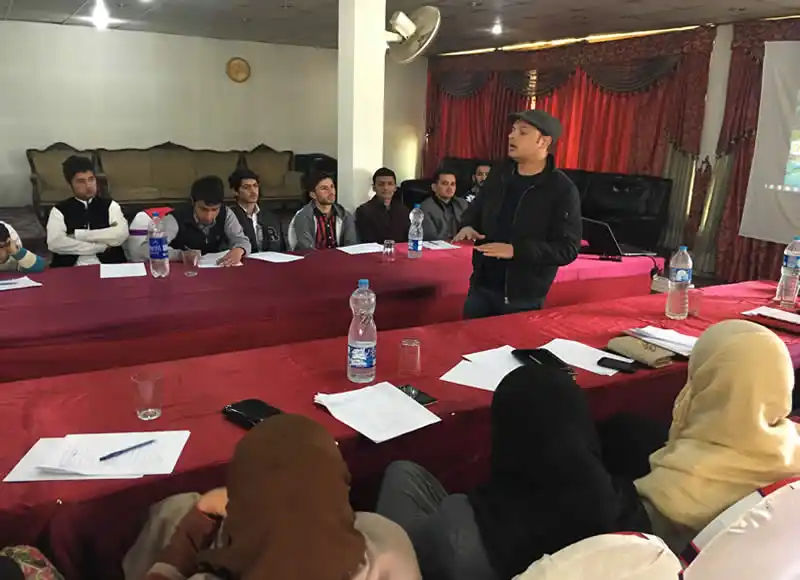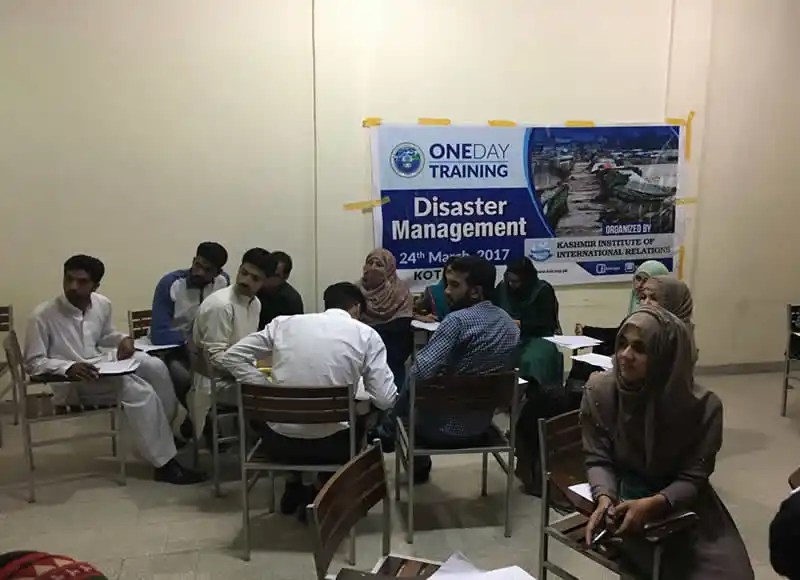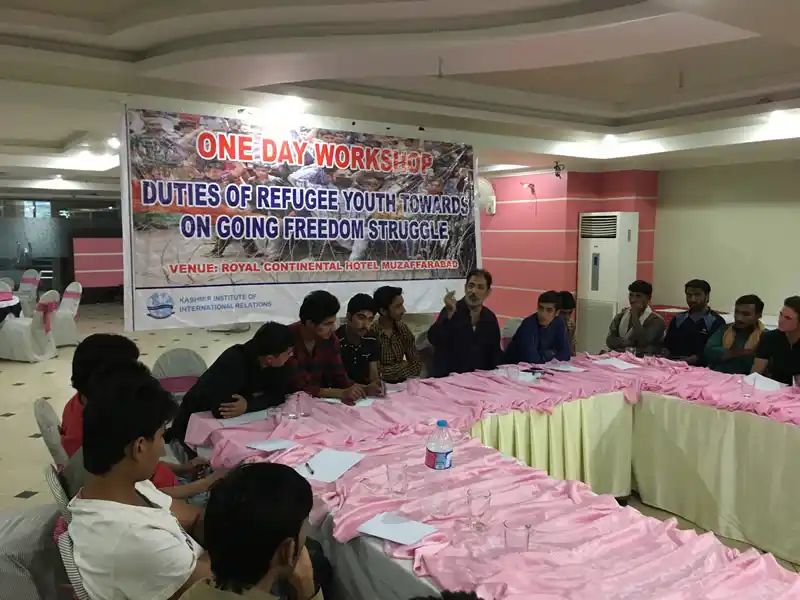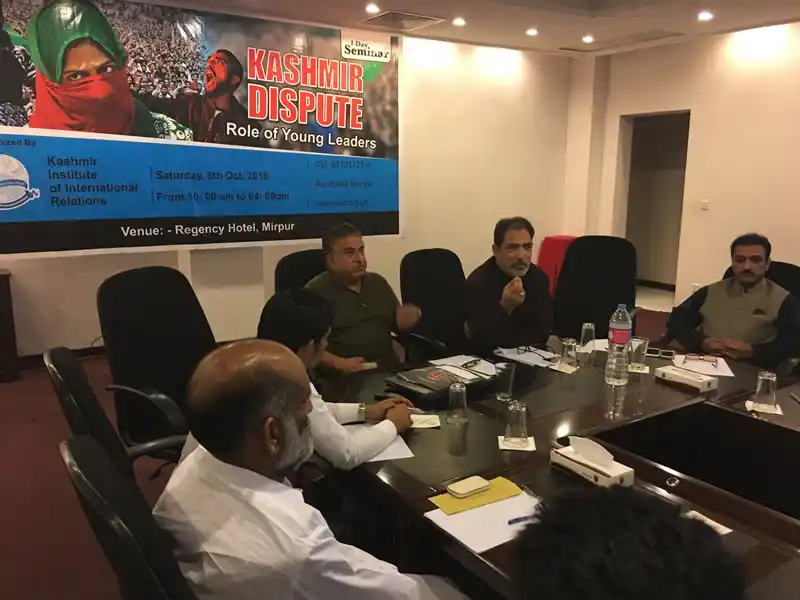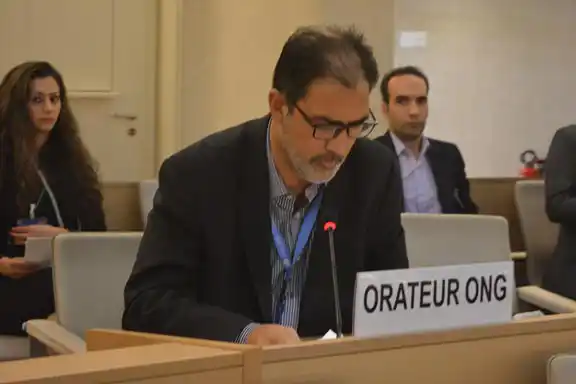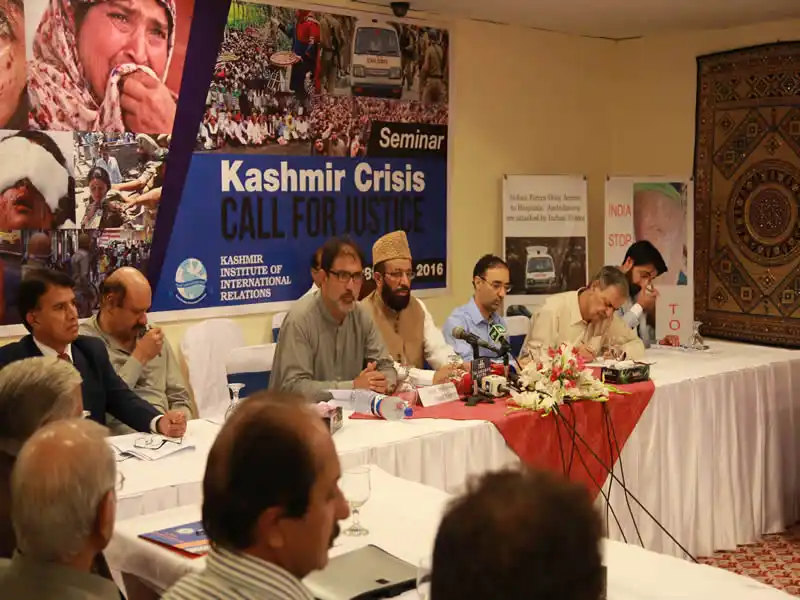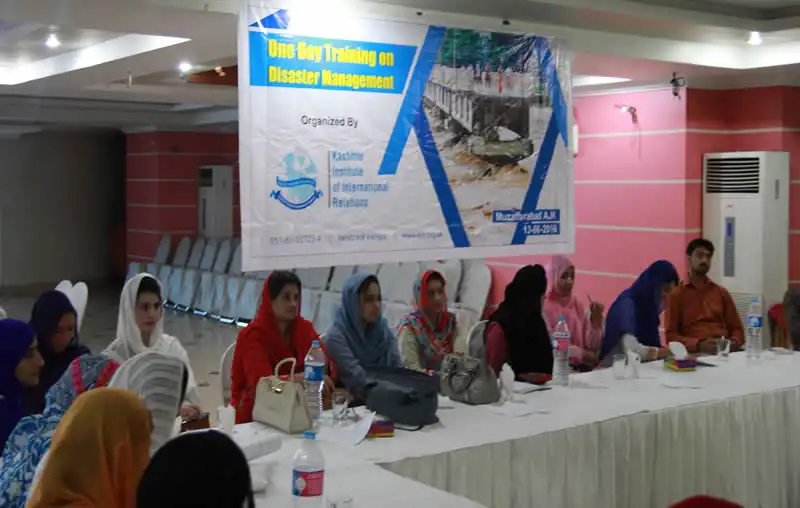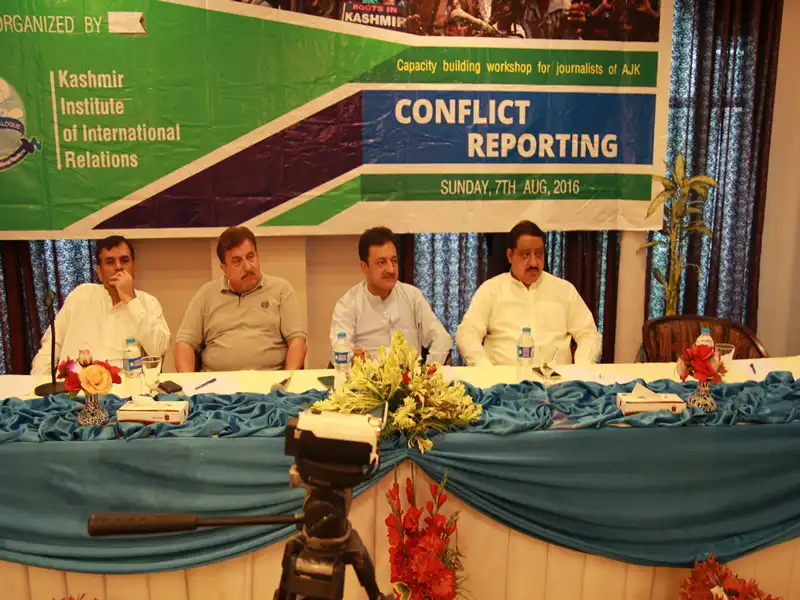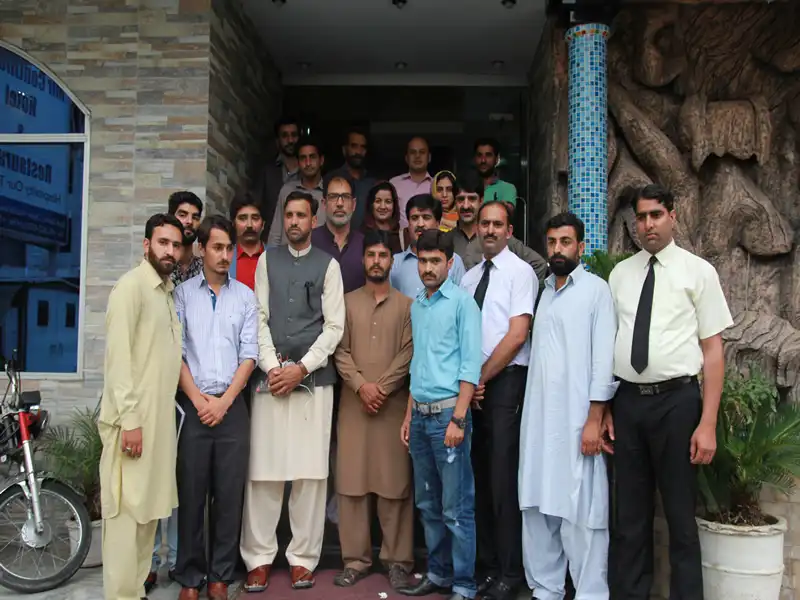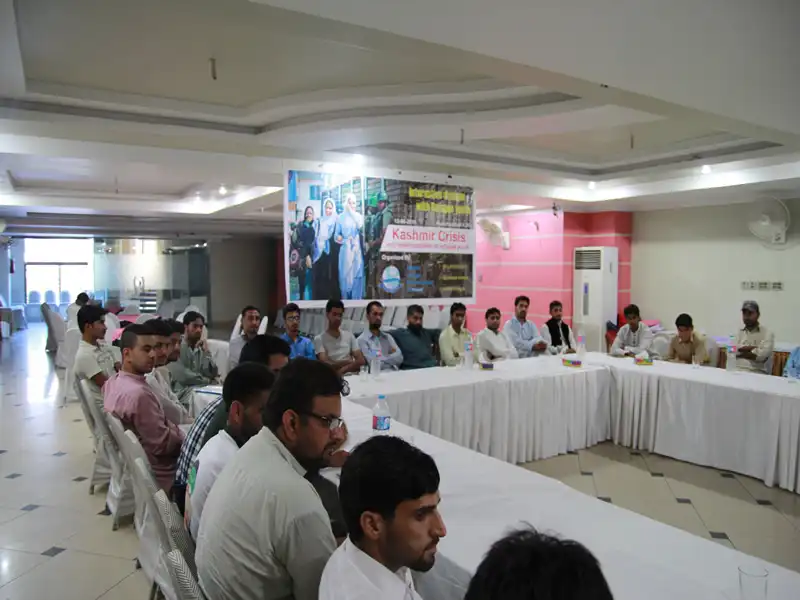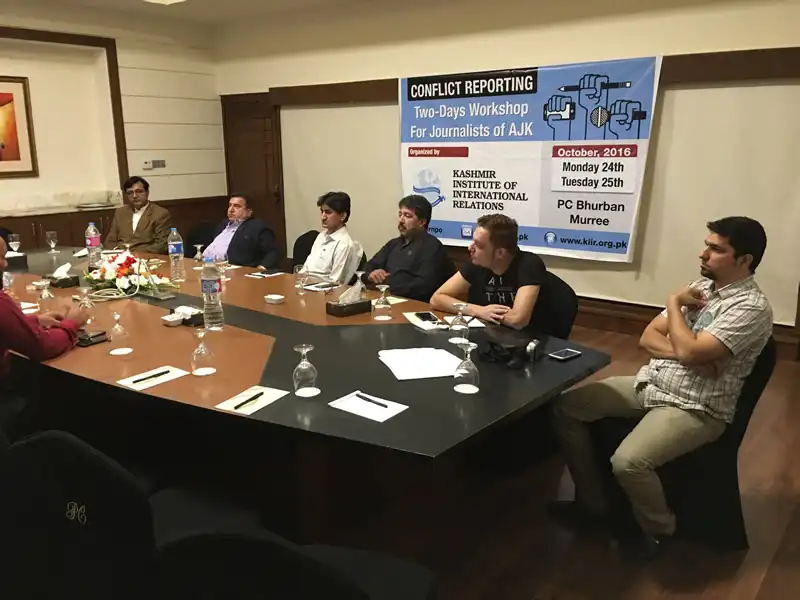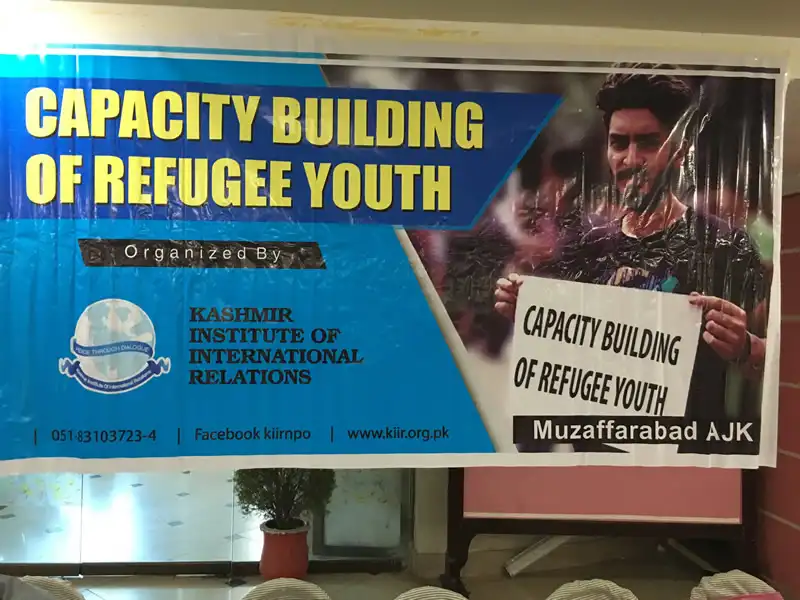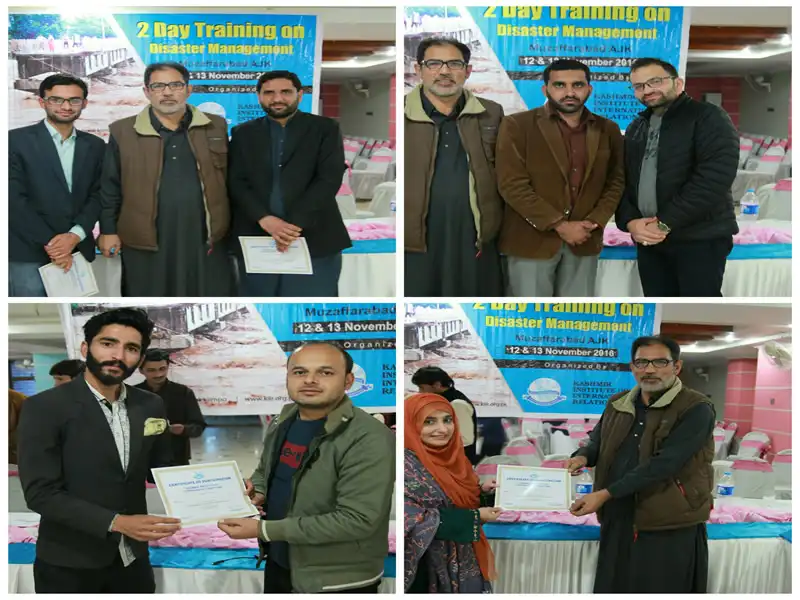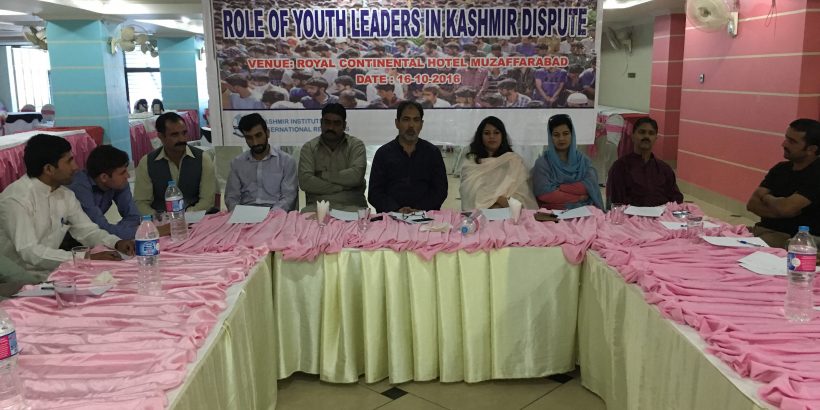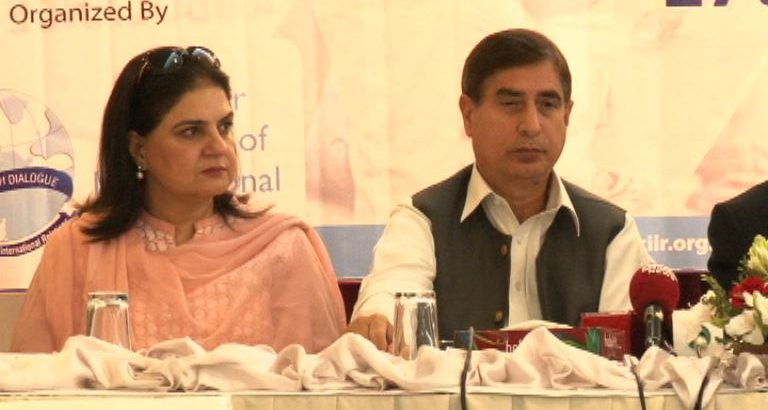KIIR Capacity Building Training Workshop for Journalists of AJK, Islamabad
KIIR Capacity Building Training Workshop for Journalists of AJK, Islamabad
Posted on 12/30/2017
Introduction
The Kashmir Institute of International Relations (KIIR) is promoting quality journalism in Azad Jammu and Kashmir (AJK). For past many years, KIIR has worked directly with many media houses, associations, professional journalists and freelancers in the belief that independent, vigorous media is crucial in peace building and improving human conditions. Aiming to raise the standards of journalism, KIIR offers hands-on training, workshops, seminars, and exchanges to print and electronic media reporters, editors, bloggers, writers and media managers.
Objectives
KIIR believes in the power of journalism to promote positive change. With this conviction, two training workshops were organized in the month of December 2017 for young journalists of AJK. The objective was to;
· Raise journalism standards and foster professional ethics among working journalists
· Improve quality of reporting and news writing in media organizations
· Familiarize journalists with codes of conduct
· Enhance journalistic skills by introducing new technology tools and reporting techniques
Participants
Forty-four journalists (three women) from print and electronic media houses and freelance bloggers participated in these workshops. Majority belonged to Urdu newspapers with an average working experience of less than five years. However, many were associated with news websites and TV/radio stations as well. Mr Aftab Iqbal (Director – Pakistan Center for Development Communication) was the lead facilitator while Mr Jalaluddin Mughal co-facilitated in the second workshop.
Timeline
The first workshop was held on 16 & 17 December 2017 in Islamabad on the topic of ‘News Reporting and Writing – Contemporary Trends’. The second workshop was held on 30 & 31 December 2017 on the topic of ‘Digital Journalism & Conflict Sensitive Reporting’.
Both workshops were designed on participatory learning approaches, wherein facilitators used following interactive tools to inform, explore opinions and build consensus among participants.
· Lecture – by the facilitator to convey information, theories, and principles
· Presentations – individual and group deliberations by participants on various issues
· Brainstorming – individual and collective thinking on important issues
· Simulations - enactments of real-life situations
· Group discussions - participants sharing experiences and ideas or solving a problem together
· Interactive audio visual sessions – Movies and audio clips to initiate discussion and provide reference for group learning
Main topics
· Common understanding about media and its power to advocate
· Types of Journalism and media
· Situation of Media in Pakistan
· Challenges for objective journalism in the media
· Structure of News Organization
· Parts of Newspaper
· What is News (basic concept of News, News structure, News value, News sense, News generation. Sources of News, Kinds of News)
· News writing (introduction of News lead, News body, Background, Difference between print and Electronic media)
· How to Plan a News Story
· Journalistic Ethics and Codes of Conduct –
· How to Practice More Ethical Journalism
· Digital Journalism
· How to use digital journalism tools for effective reporting
Methodology
To start proceedings, the facilitator used an innovative technique for introduction of participants. During the session, it emerged that many participants had never received any formal education on journalism or participated in any journalism training before this event. It was for this reason; they lack understanding of historic and contemporary debates about professionalism and ethics in the media or peace building. It was also observed that in the line of duty, many participants had faced violence, intimidations, restrictions, threats and criminal cases from government particularly police, and local political and social groups in the past. During the session, the facilitator shared several terms that are frequently used in newsrooms around the world. However, majority found it difficult to offer any explanation or definition for the terms. The session was highly interactive and helped participants to understand the diversity of issues that are impacting upon local media.
In the next session, the facilitator presented statistics about dimensions of media growth and freedoms in the country. Participants discussed different challenges for media including low levels of literacy in the society, decreasing purchasing power of readers, lack of communication infrastructure in rural areas, high costs of printing and production of media, low business and economic support to media, government controls on public advertising and many others. To further explore this topic, participants were given the ‘Pakistan Press Freedom Report Jan 2016 – Apr 2017’ to read and discuss in groups about situation of media freedoms in the country.
During the training, participants learned about how media organizations are structured in terms of editorial decision-making and administrative matters. They were also briefed about parts of a newspaper and how different organizations view them, for readerships interest and according to their policy.
Participants discussed their style of working in respective media organization after learning about characteristics of news. They learnt about the 5W’s and ‘H’ of news; and how to develop news with the help of inverted pyramid. Several reporters presented their approach of going to the field; and how they present facts to the readers. The facilitator highlighted importance of story planning and gave useful tips to enhance quality of reporting.
After that, in a group discussion exercise, participants reviewed a TV news report. They analyzed the report for its news worthiness, production quality, objectivity, fairness, correctness and credibility. The discussion was informative and engaging as several unique ideas were shared with regards to local cultural, economic and environmental cycles.
An important part of this workshop was discussion on codes of ethics for journalists. The facilitator shared three models and explained how they were developed. Later on, participants were invited to read in groups, all codes of ethics and share their opinions about how they are relevant to local context.
In the next workshop, participants were apprised with use of information and communication technologies for journalism; and how journalists can improve their work with the help of these advancements.
Different types of digital content platforms were shared. With the help of digital content wheel, participants analyzed their usage of digital media for educational, information, entertainment, inspirational, support and advocacy needs. They learnt about differences between traditional and digital journalists and how change is putting pressures on both types of professionals.
To refine their skills in digital journalism, facilitators informed the participants’ about seven steps of successful storytelling. They shared information about software, hardware and knowledge resources that are required for effective digital journalism. By developing their own news reports, participants worked in groups on local issues and presented their outputs.
In the end, participants received certificates from KIIR leadership.
| S.No. | Name | Organization | Designation |
| 1 | Kashif Mir | Kashmir Times | Journalist |
| 2 | Saqib Ali haideri | Daily parliament times | Journalist |
| 3 | Syed Khalid Gardezi | State Views | Journalist |
| 4 | Atiq Ahmed SadoZai | Daily Kashmir Times | Journalist |
| 5 | Nawzish Abbas | JK News | Journalist |
| 6 | Kalim Ullah Khan | State Views | Journalist |
| 7 | Ashraf Ahmed Abbasi | 92 News | Reporter |
| 8 | Abdul Manan Wani | 92 News | Freelance Writer |
| 9 | Hafsa Masoodi | 92 News | Freelance Writer |
| 10 | Faiza Gillani | Capital News & Khabarnama News | Journalist |
| 11 | Syed Ishfaq Hussain Shah | Abb Tak Tv | Reporter |
| 12 | Muhammad Kashif | Lahore News | Reporter |
| 13 | Amir Ali Syed | State Views | Journalist |
| 14 | Safeer Raza | Capital Tv | Journalist |
| 15 | Sarwat Kiani | Haveli News | Reporter |
| 16 | Danish Irshad | Kashmir Times | Journalist |
| 17 | Tauqeer Khan | Geo News | Reporter |
| 18 | Zeeshan Qureshi | Daily Khabrein Islamabad | Reporter |
| 19 | Sajid Ali Chaurdry | Daily Khabrein | Reporter |
| 20 | Umar Khayam | VOK FM105 | Journalist |
| 21 | Bilal Rafiq | Daily Jammu and Kashmir | Journalist |
| 22 | Ahmed Haroon | State Views | Journalist |
| 23 | Wasim Abbas | State Views | Journalist |
| 24 | Umer Farooq | State Views | Journalist |
| 25 | Jalal Uddin Muhghal | Kashmir Image | Journalist |
| 26 | Maqsood Ahmed | State Views | Journalist |
| 27 | Sobia Musharraf | Daily state views online | Sub-Editor |
| 28 | Atta Ur rehman Abbasi | Daily state views | Journalist |
| 29 | Hammad Ul Hassan | Daily Khabrein | Journalist |
| 30 | Sheraz Rathore | Online International News Agency | Reporter |
| 31 | babar Abbasi | Jag Tv | Reporter |
| 32 | Asim Rafique | Daily Khabrein | Journalist |
| 33 | Tariq Mehmood Shakir | Daily Khabrein | Journalist |
| 34 | Abdul Shahid | Daily Khabrein | Journalist |
| 35 | Shahzeb Afzal | 24 news | Reporter |
| 36 | Abdul Hafeez Azad | Jammu Kashmir times | Journalist |
| 37 | Rashid Ahmed | Capital News | Reporter |
| 38 | Sardar Adnan | Capital News | Reporter |
| 39 | Tahir Nazir | BaghTimes | Journalist |
| 40 | Amir Ali Syed | Sach Tv | Reporter |
| 41 | Rizwan Abbasi | Sach News | Reporter |
| 42 | Muhammad Bilal | AK Radio MirPur | Reporter |
| 43 | Nadeem Khan | Kashmir Image | Journalist |
| 44 | Waleed Shakeel | Jammu Kashmir news | Journalist |
More Activities
